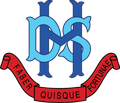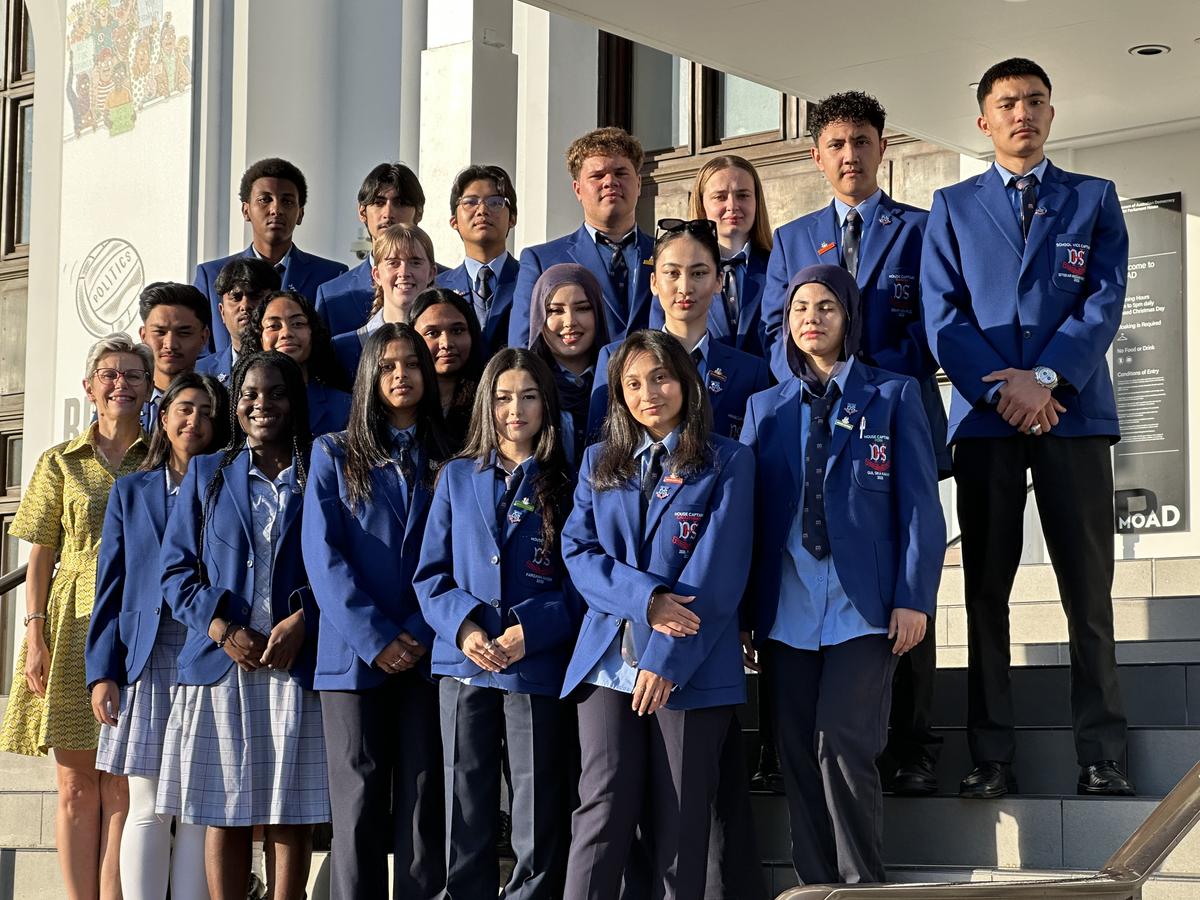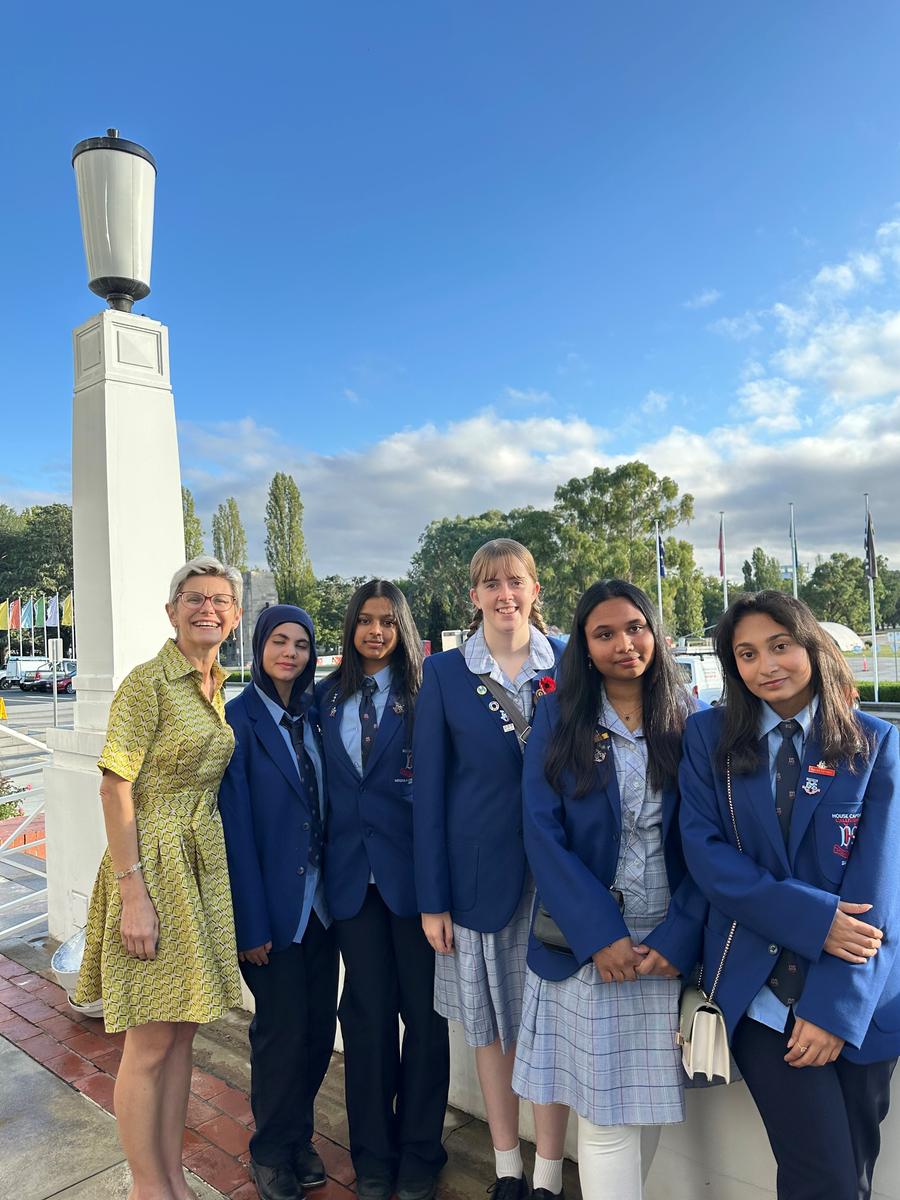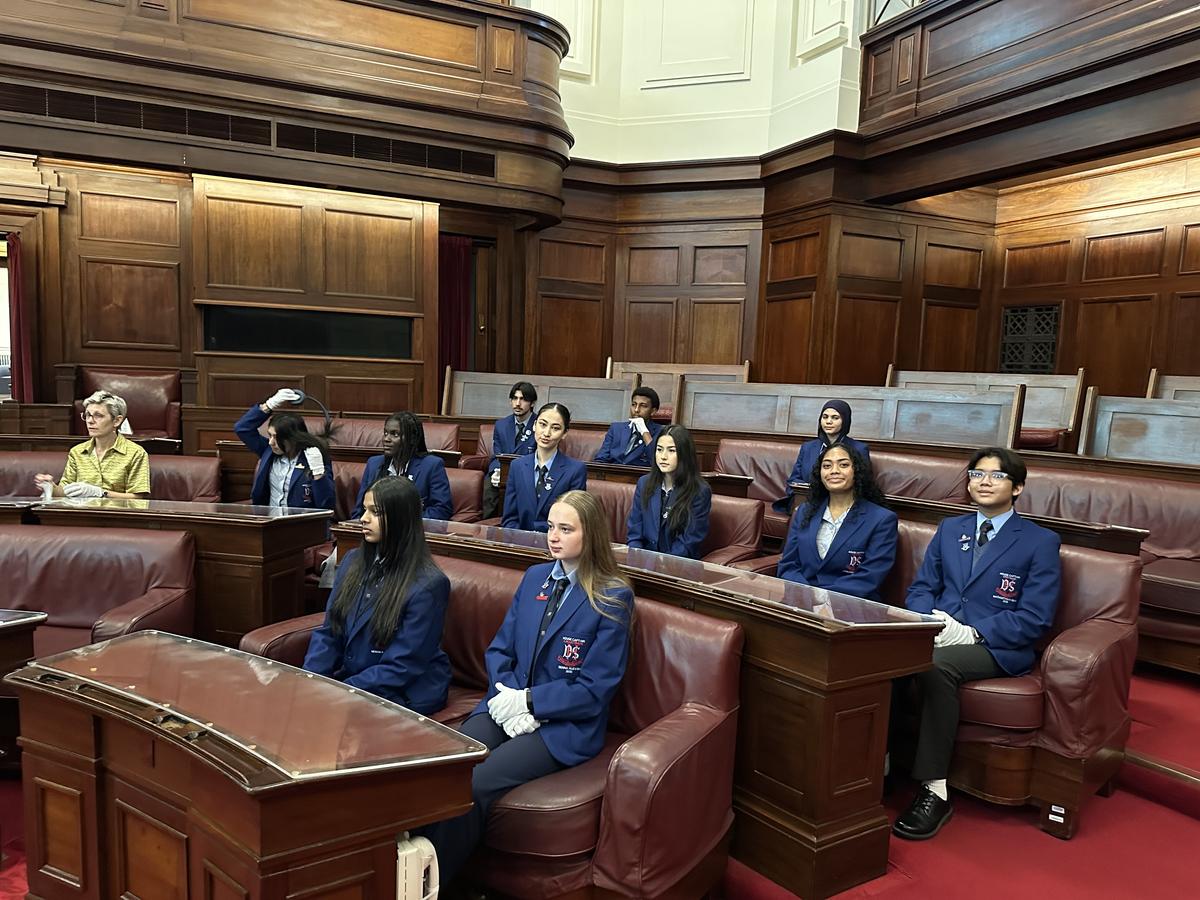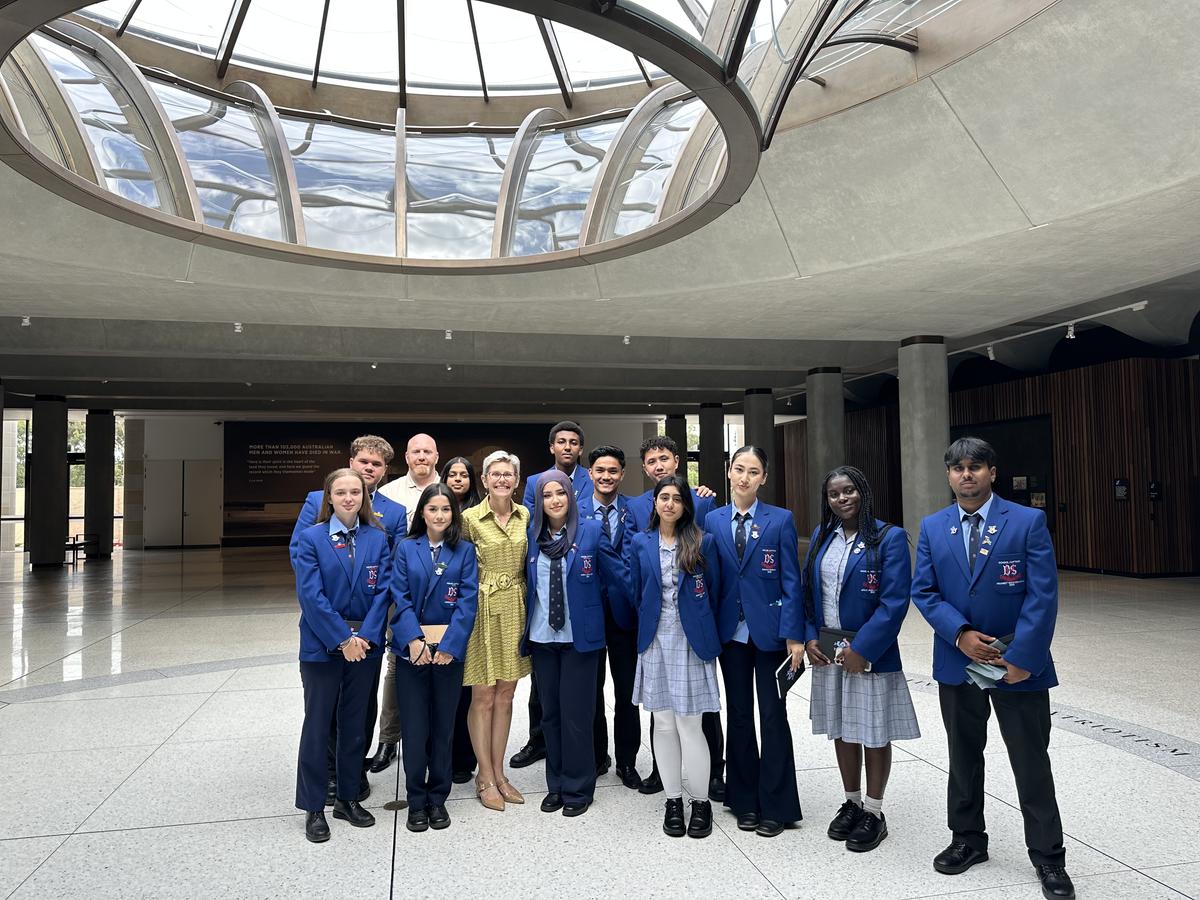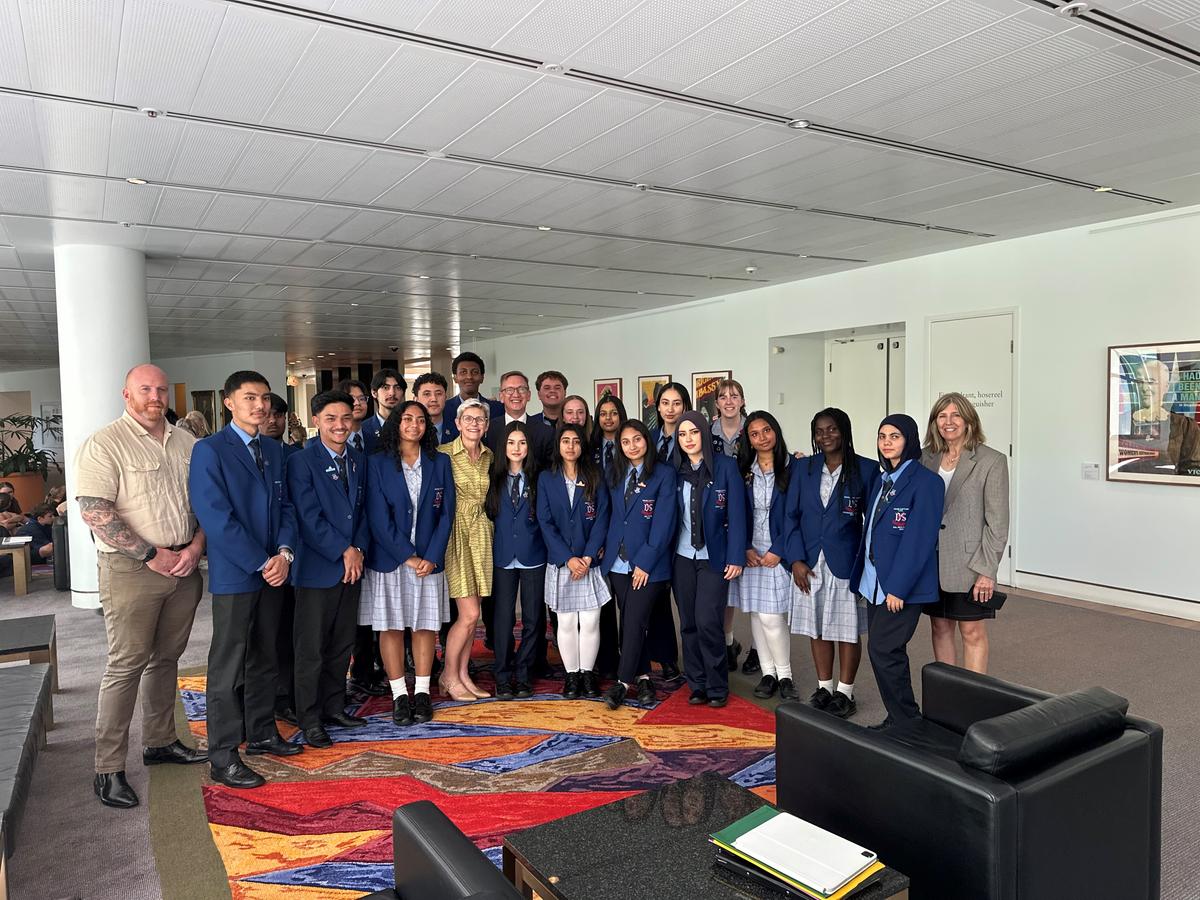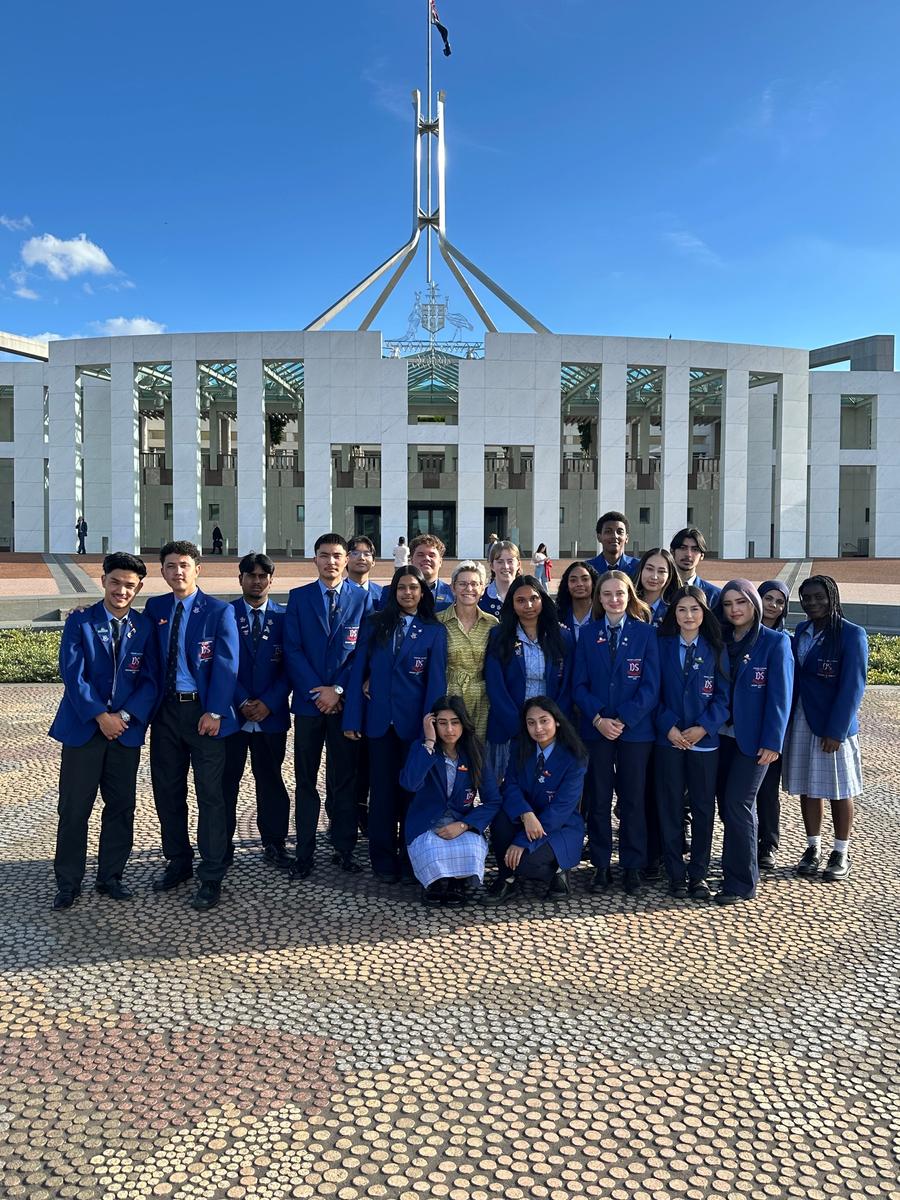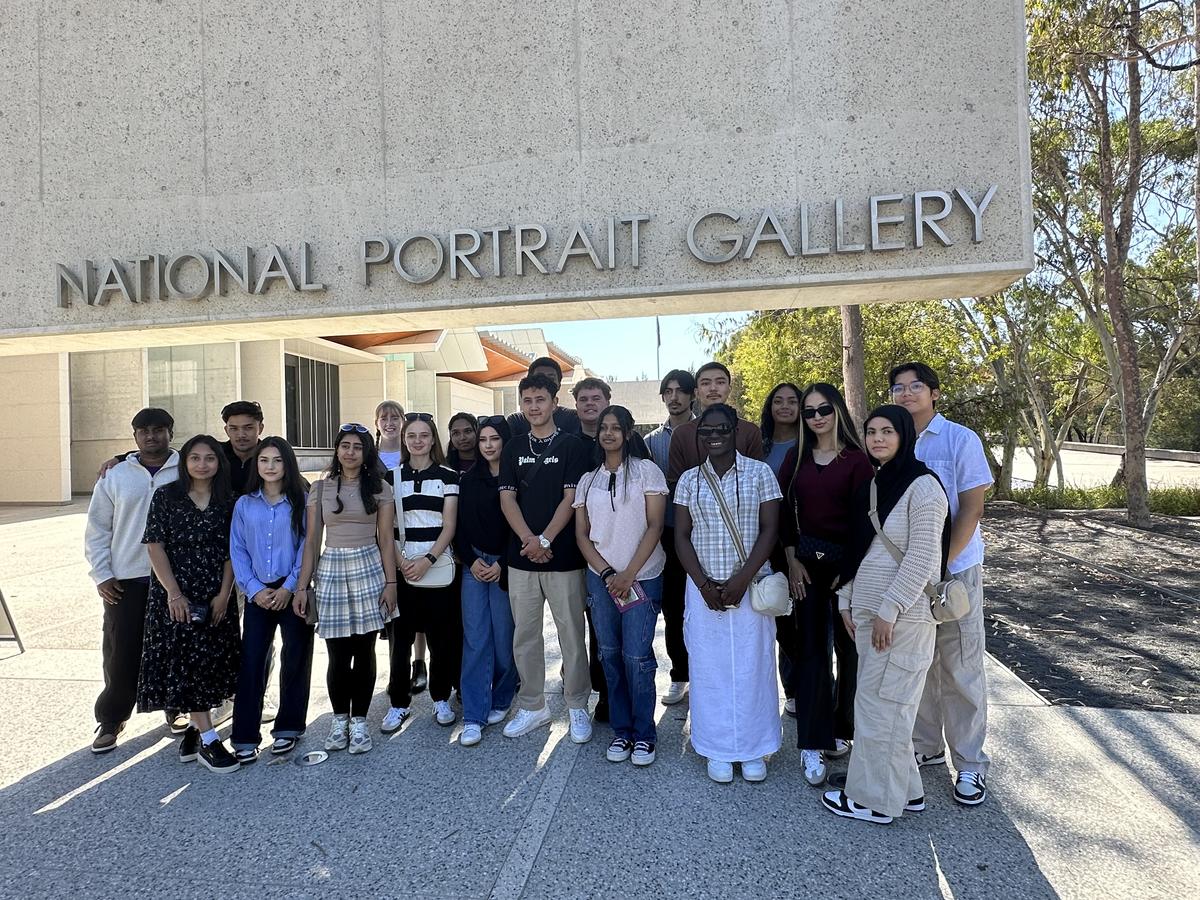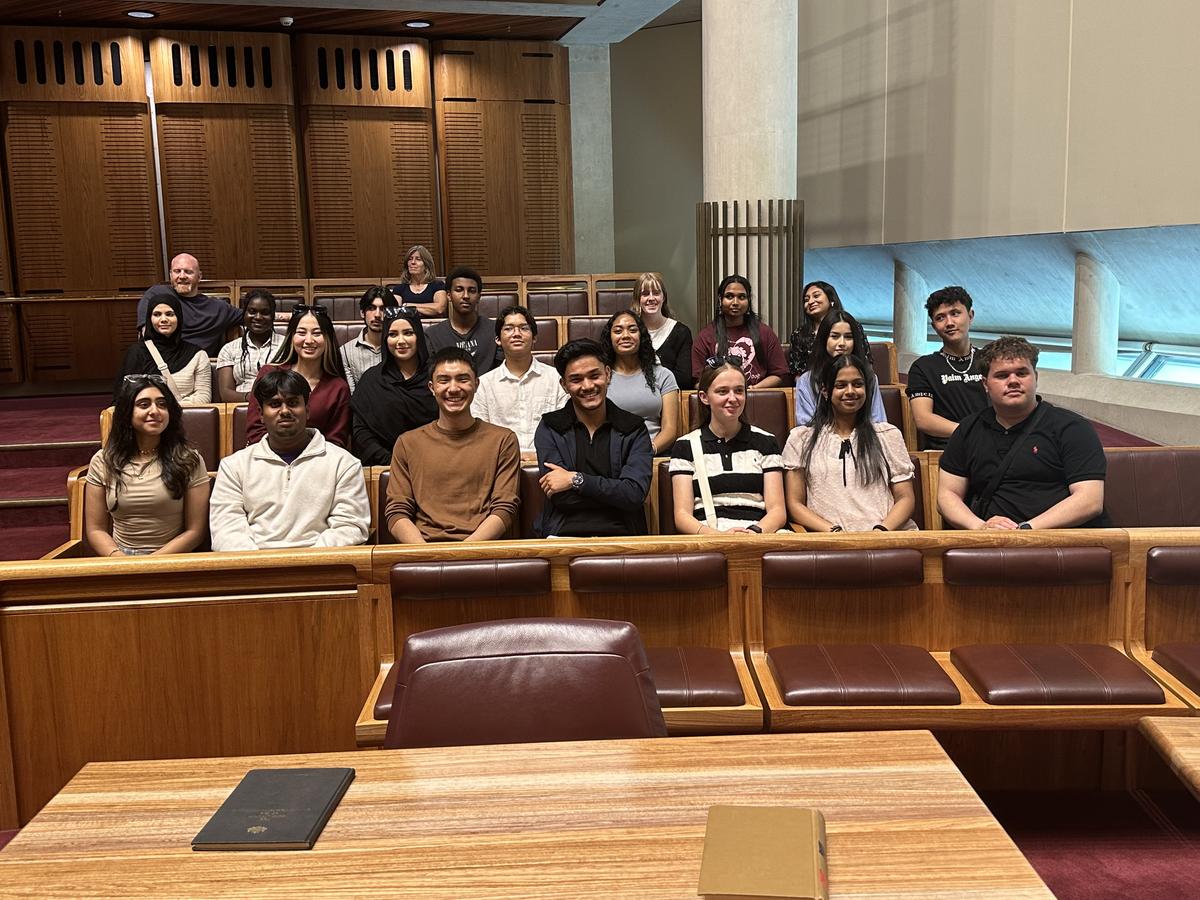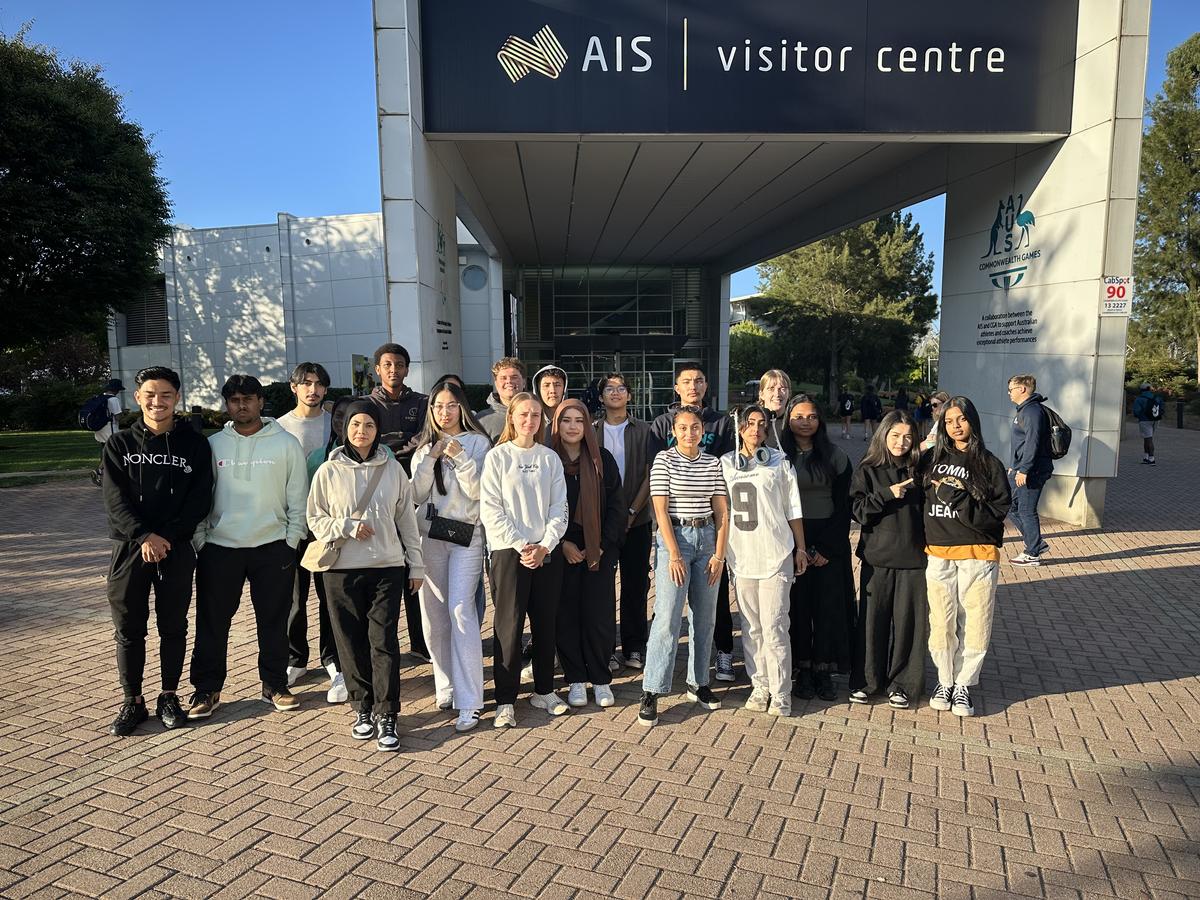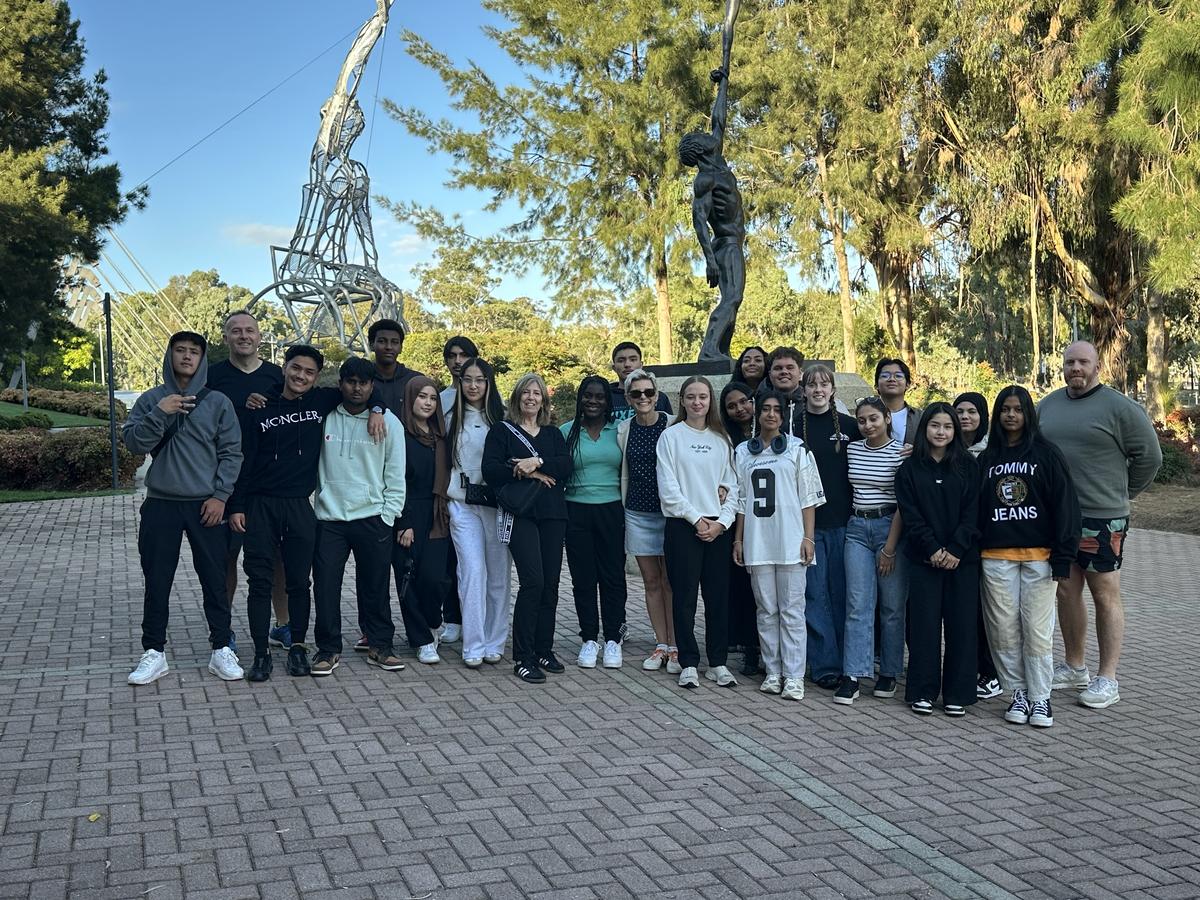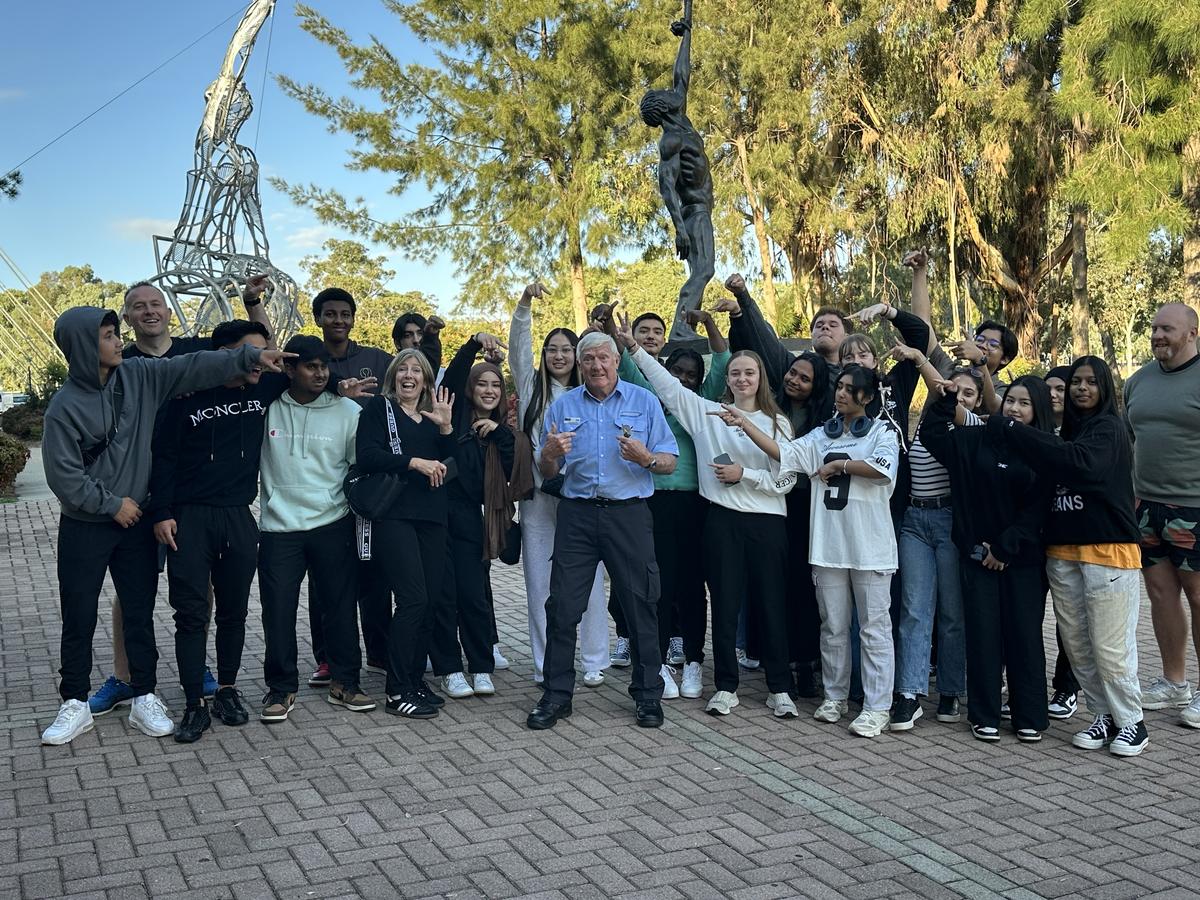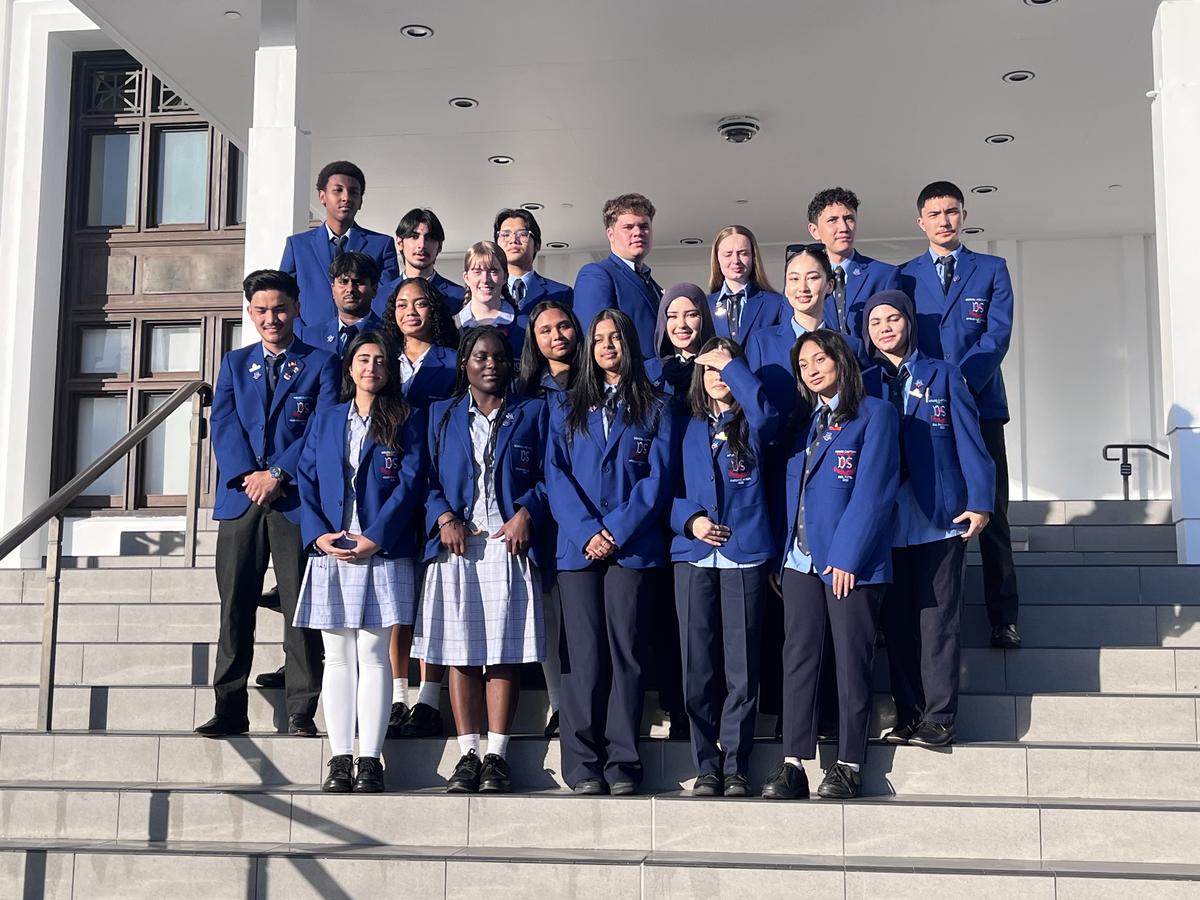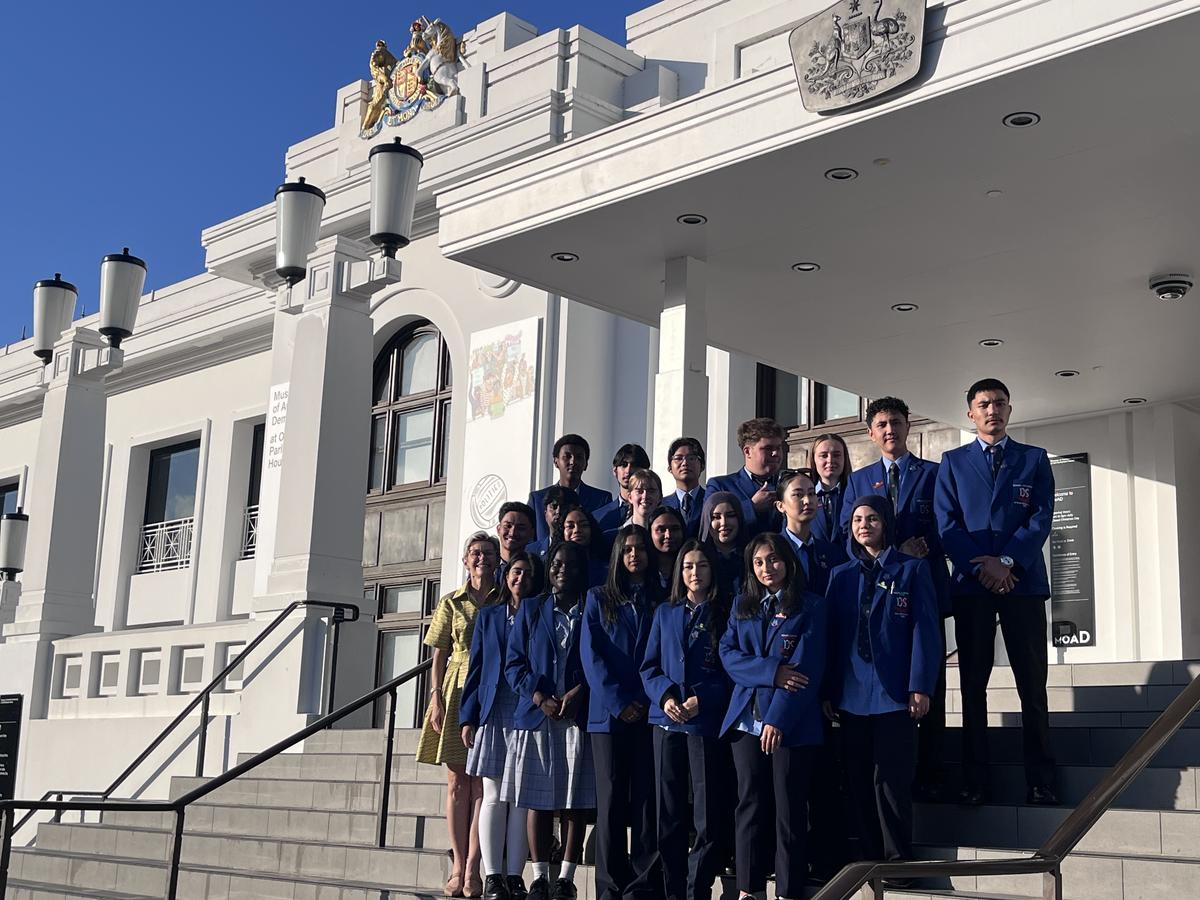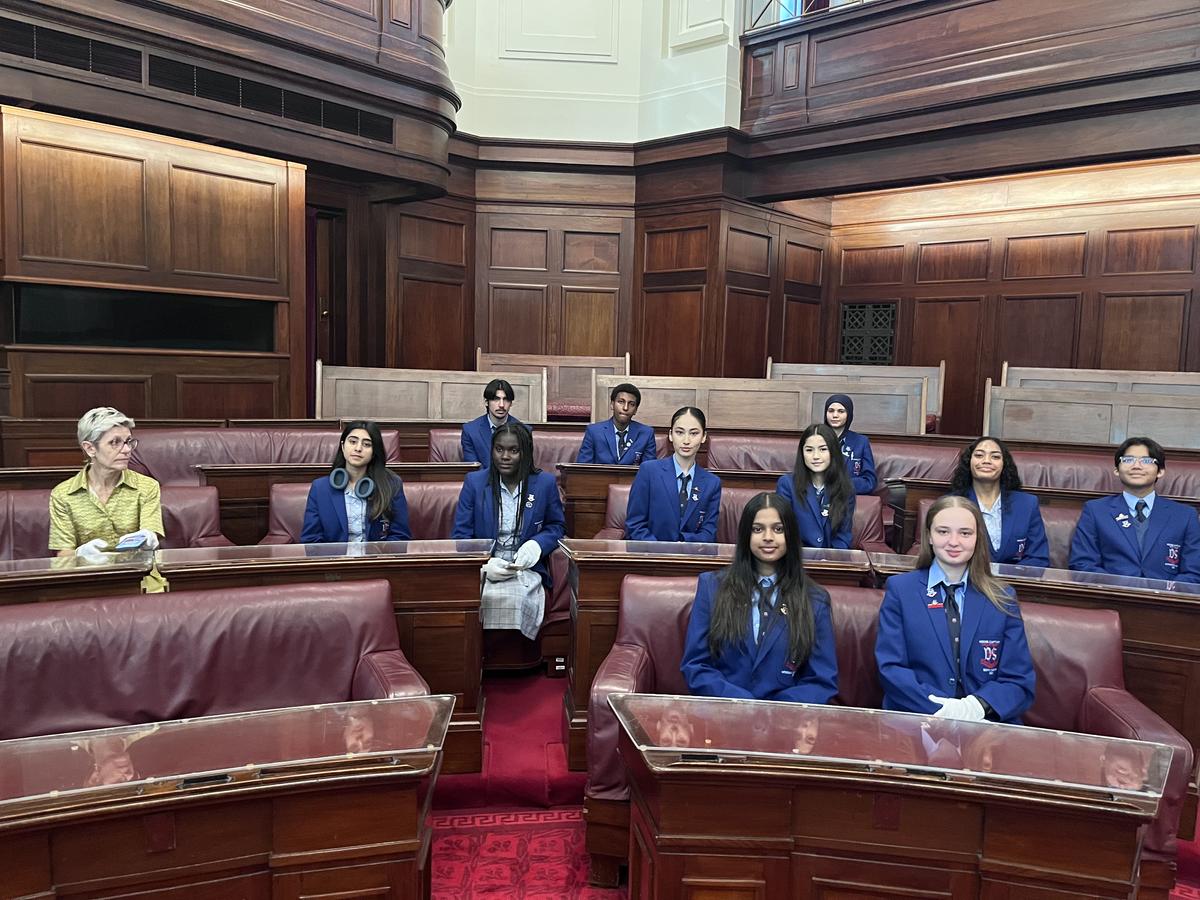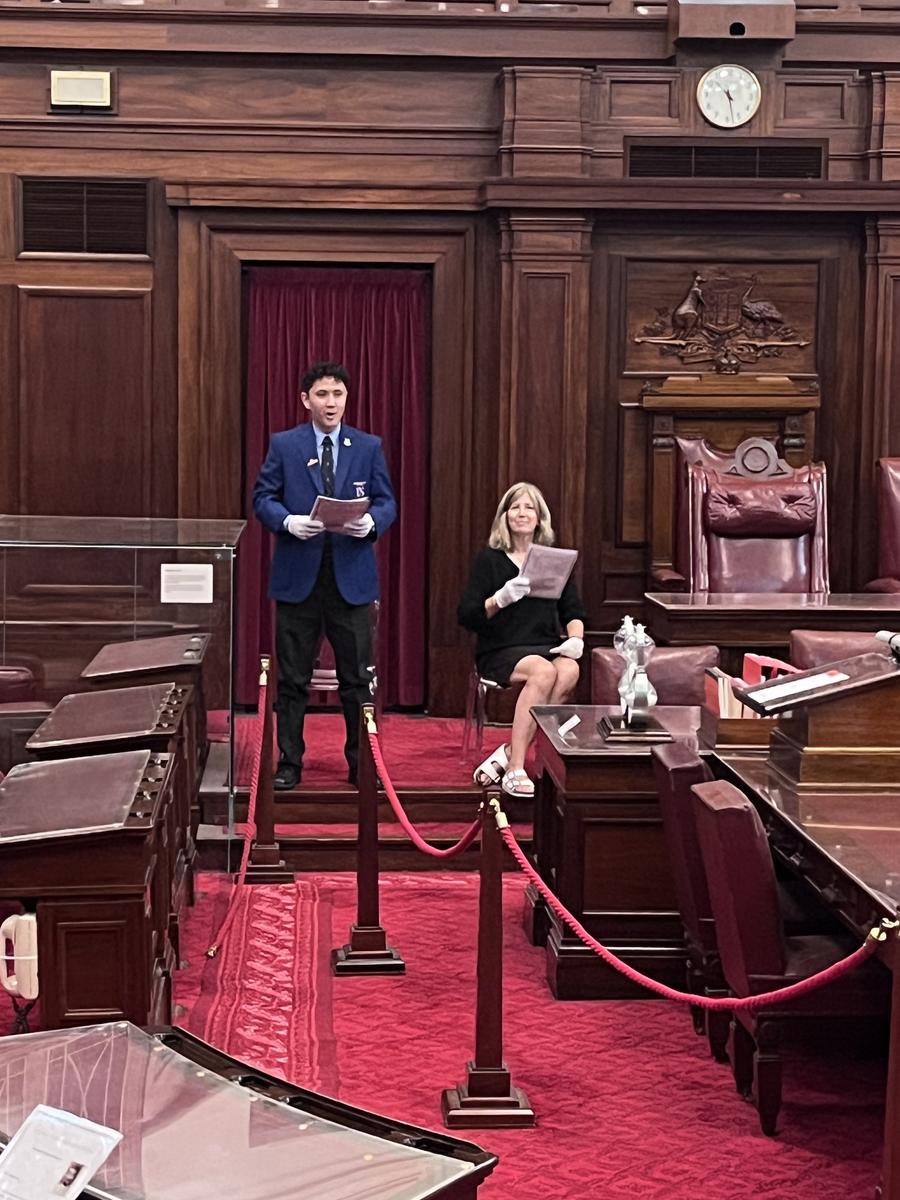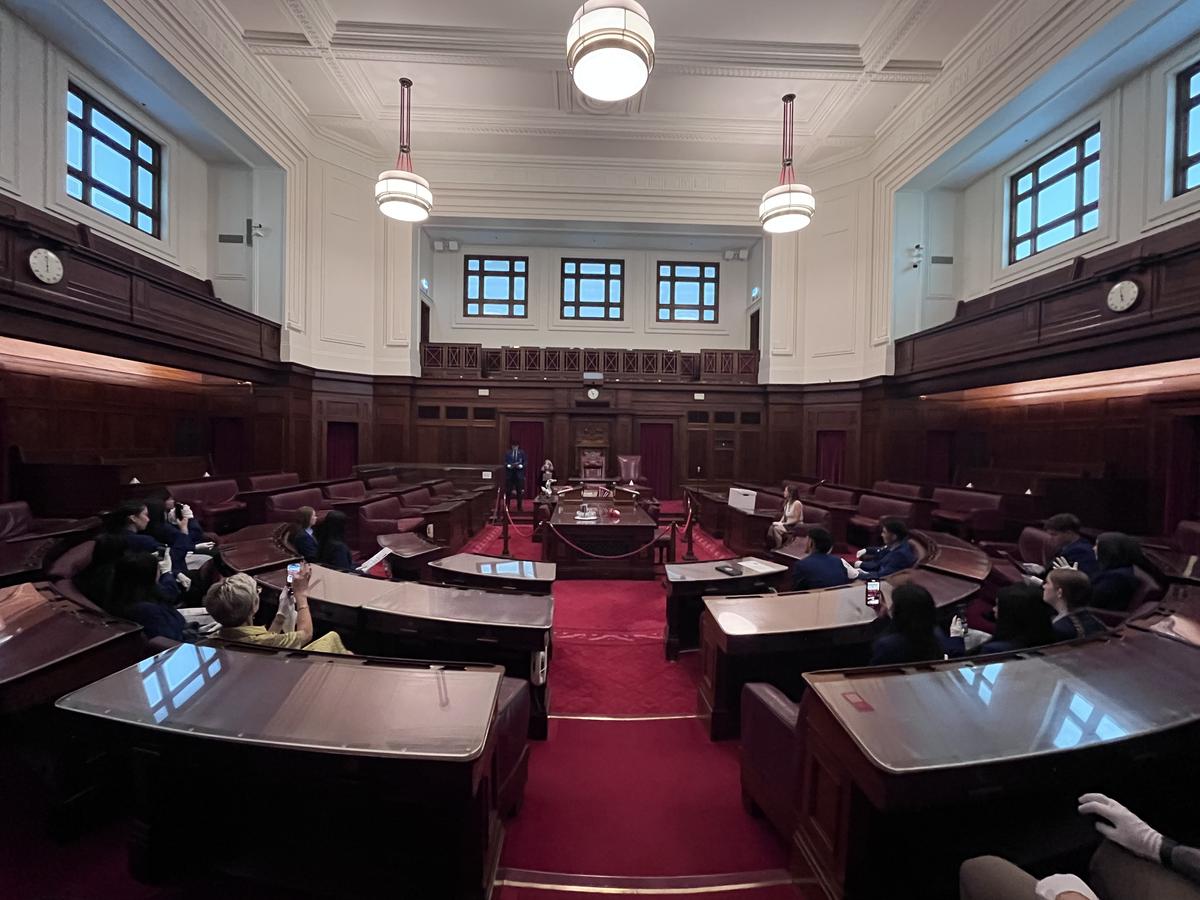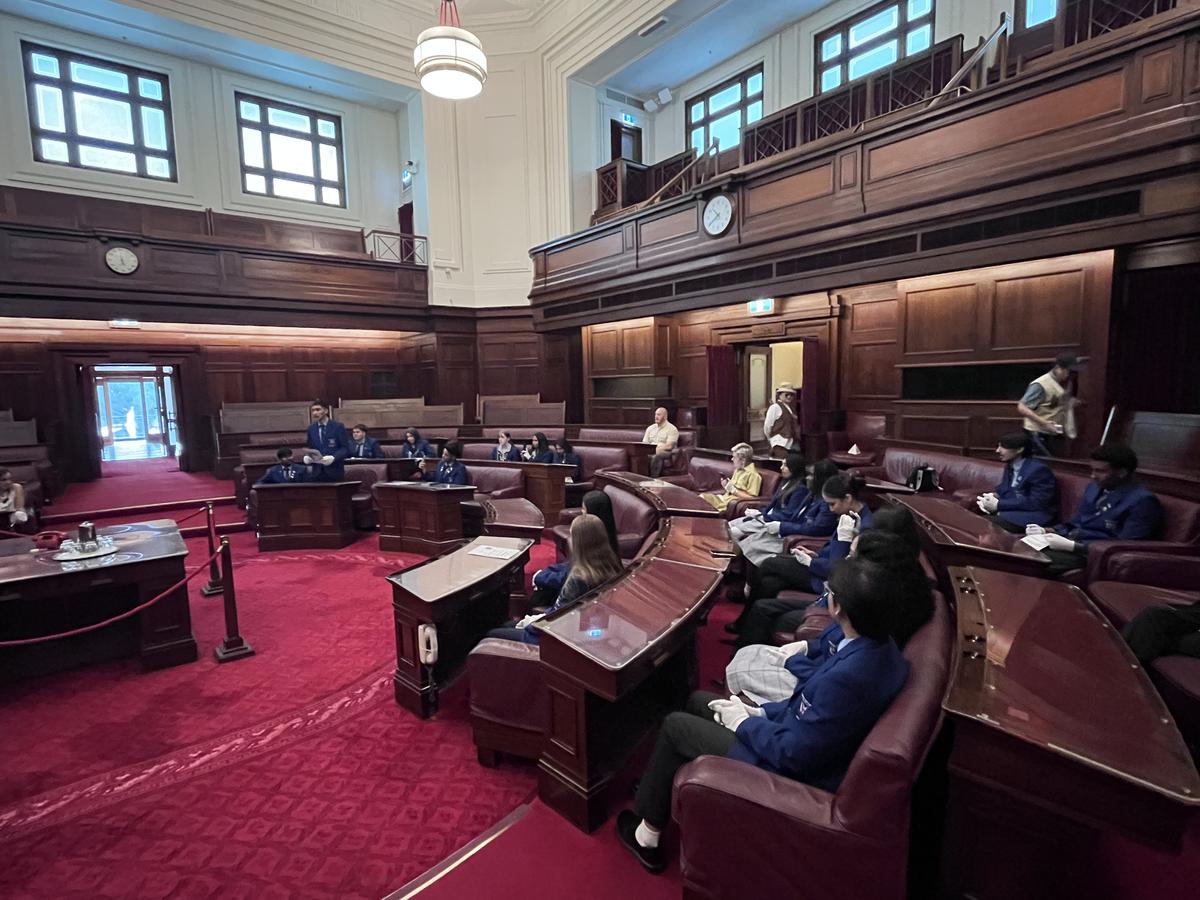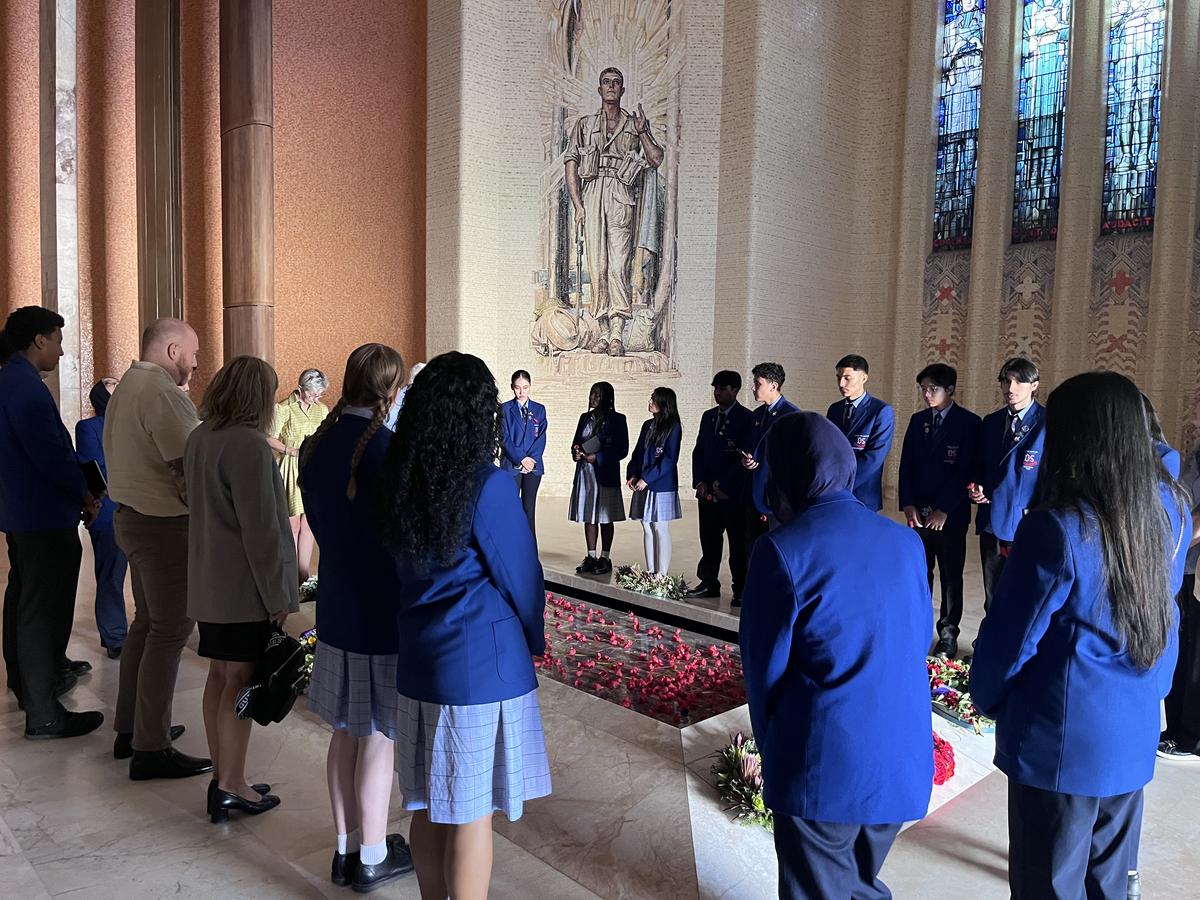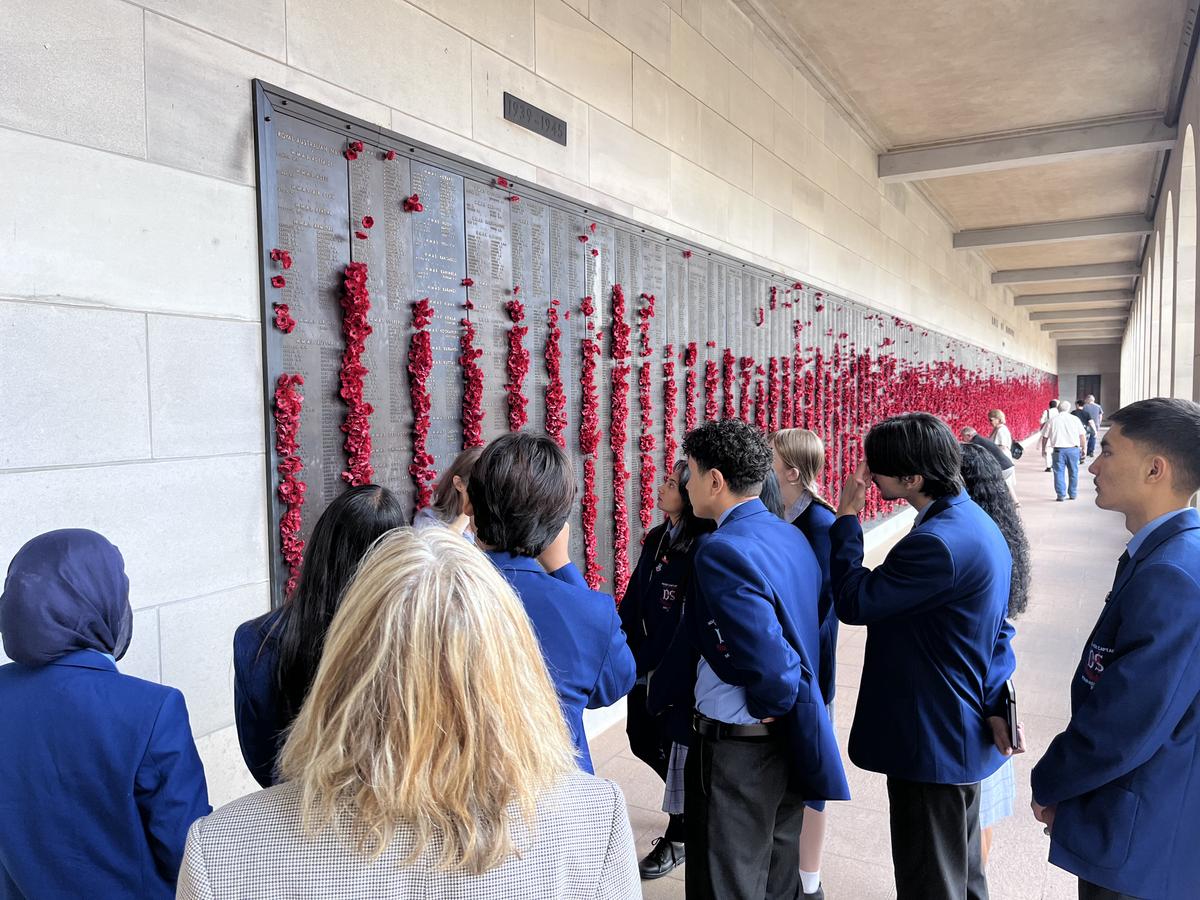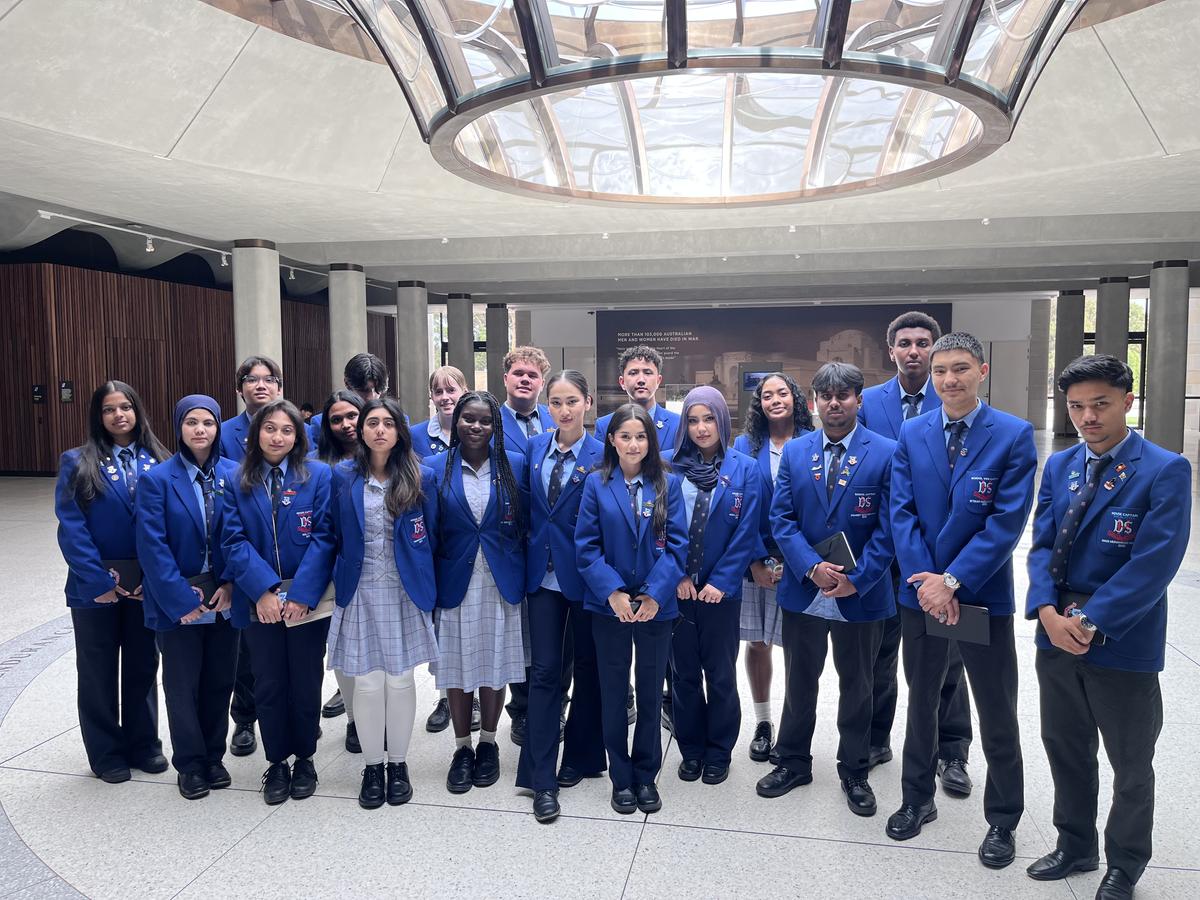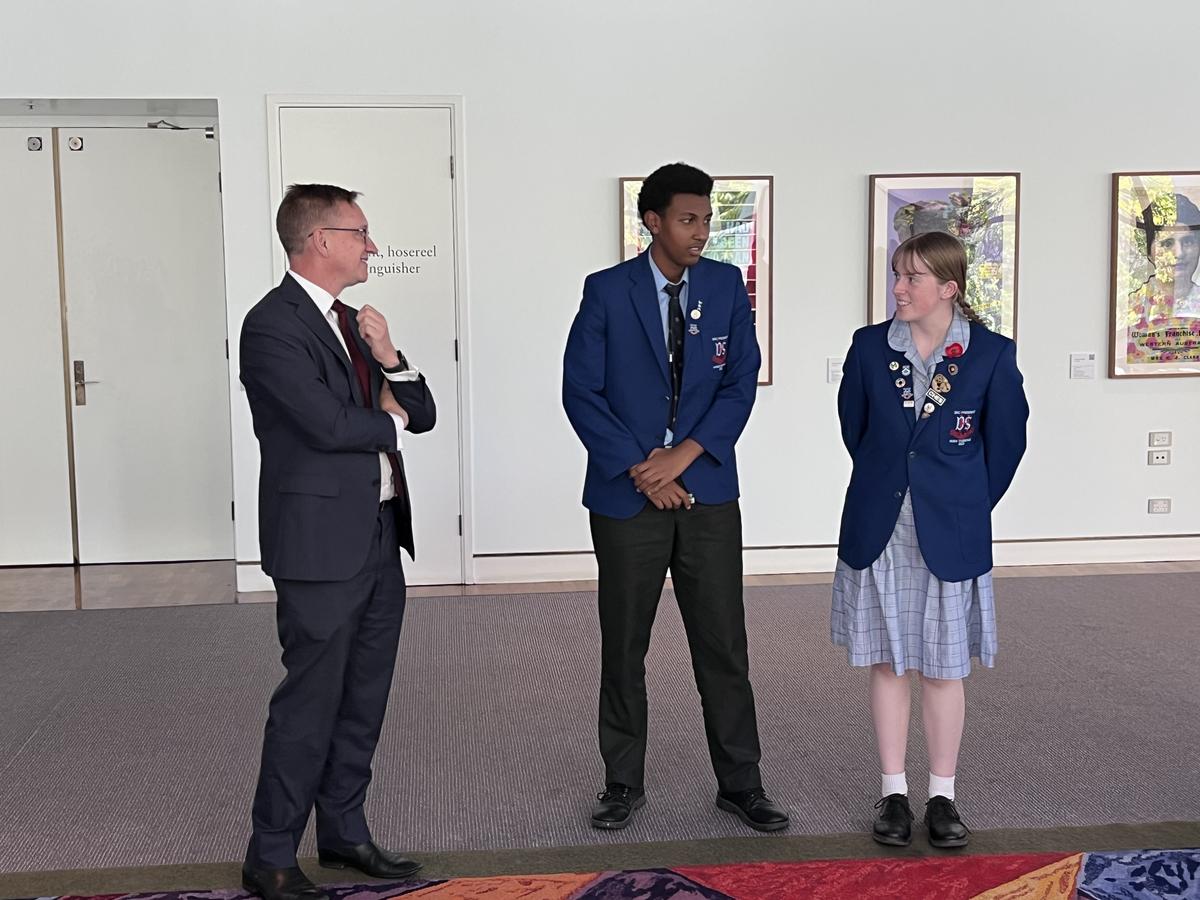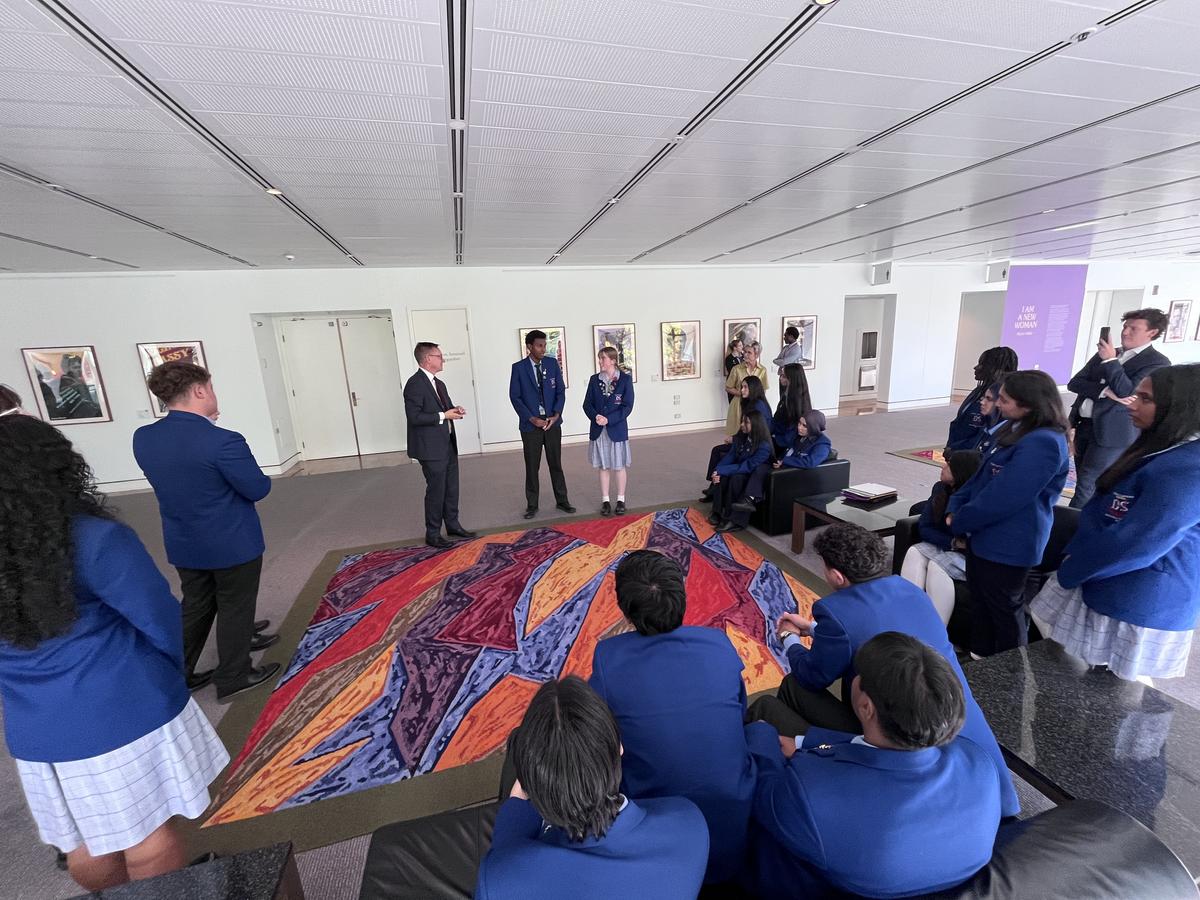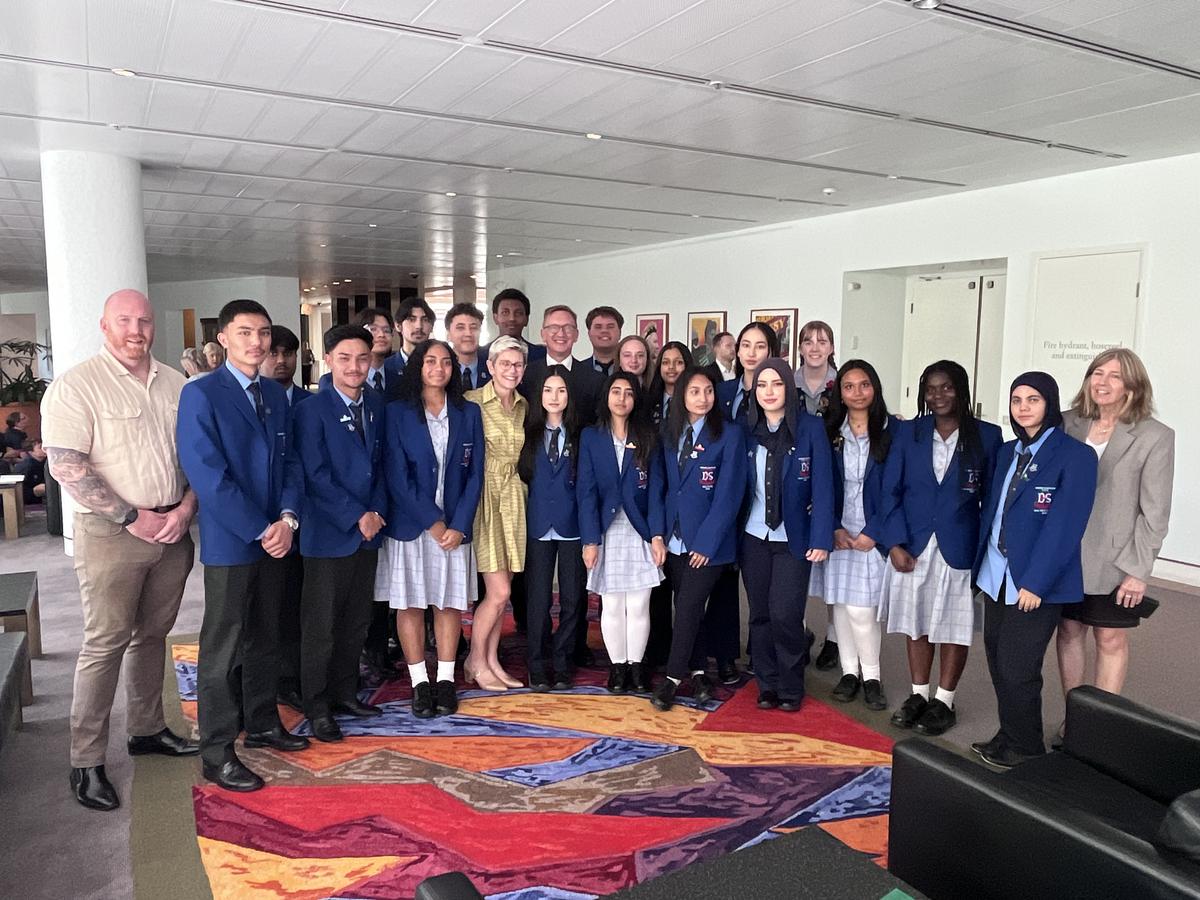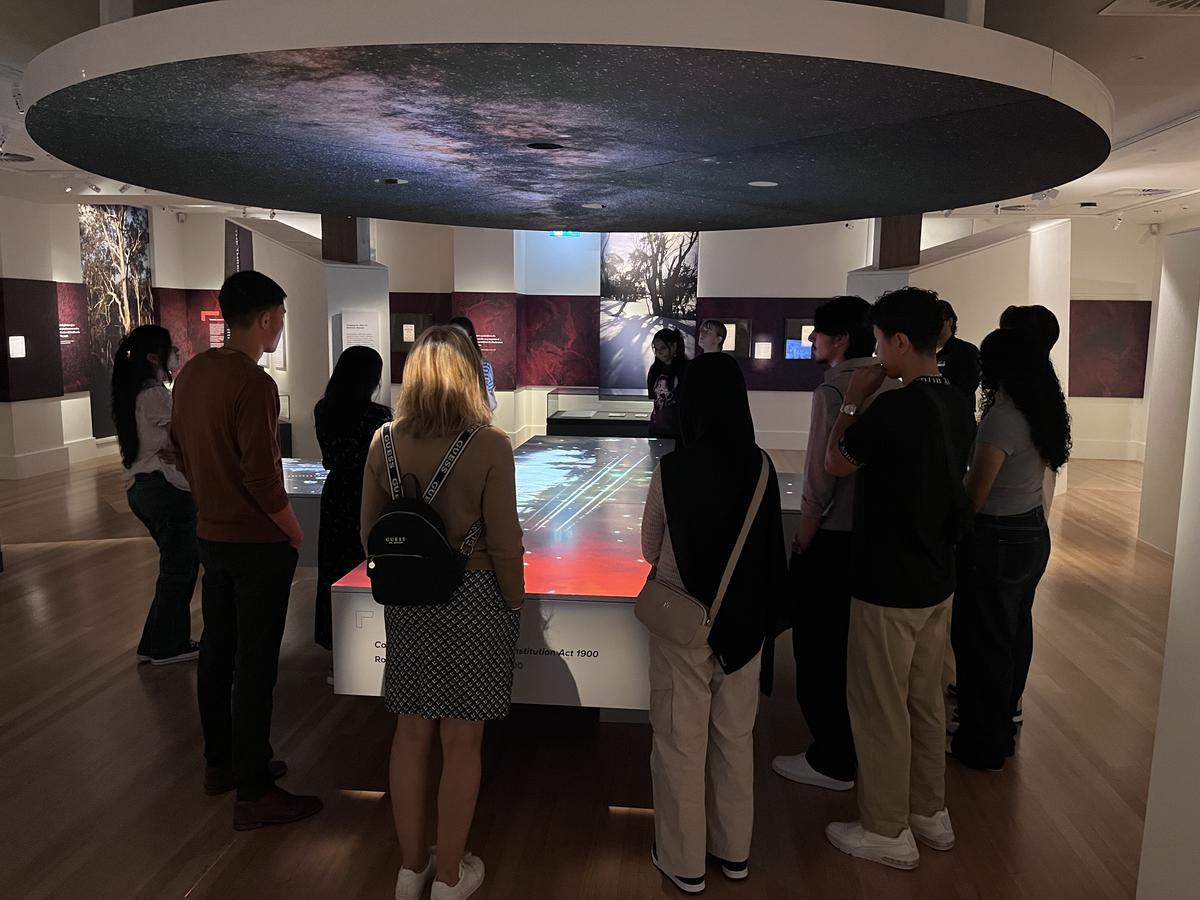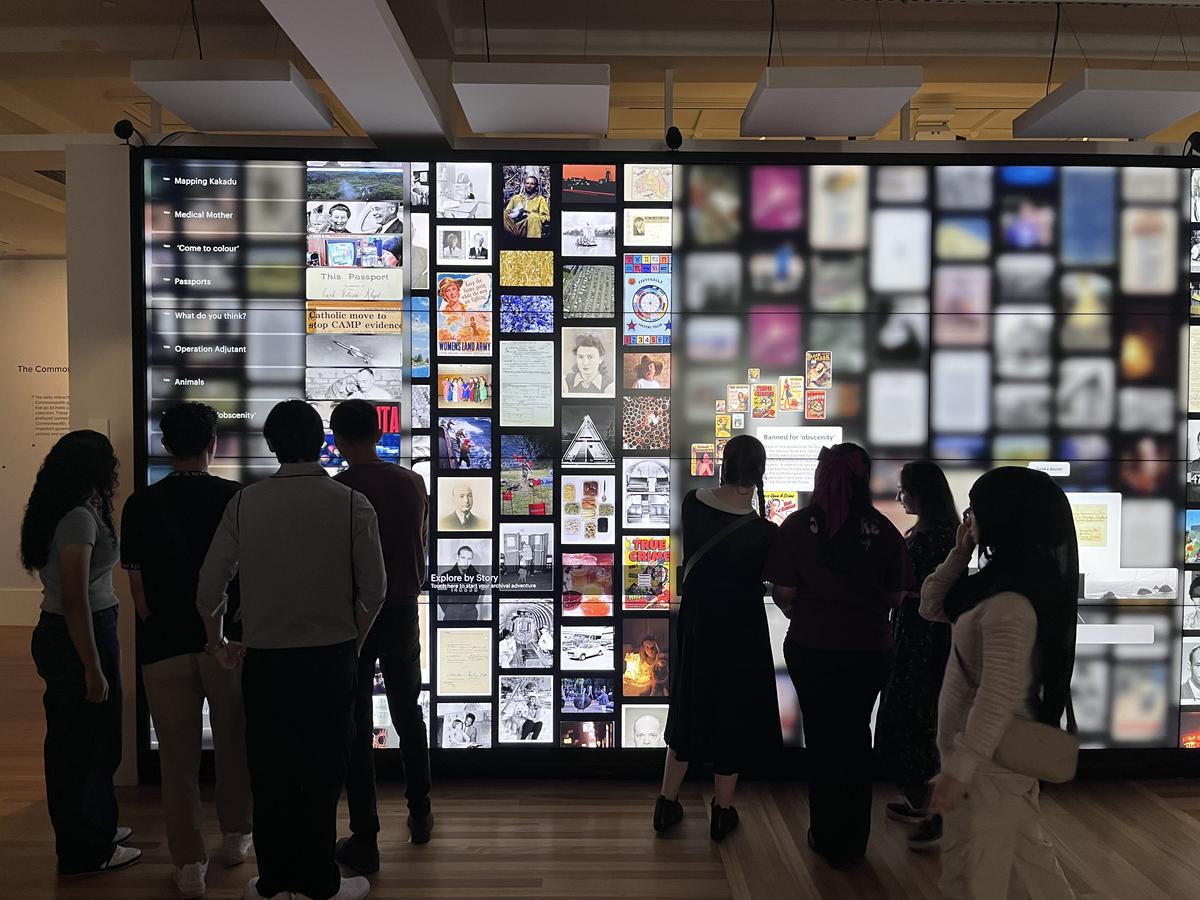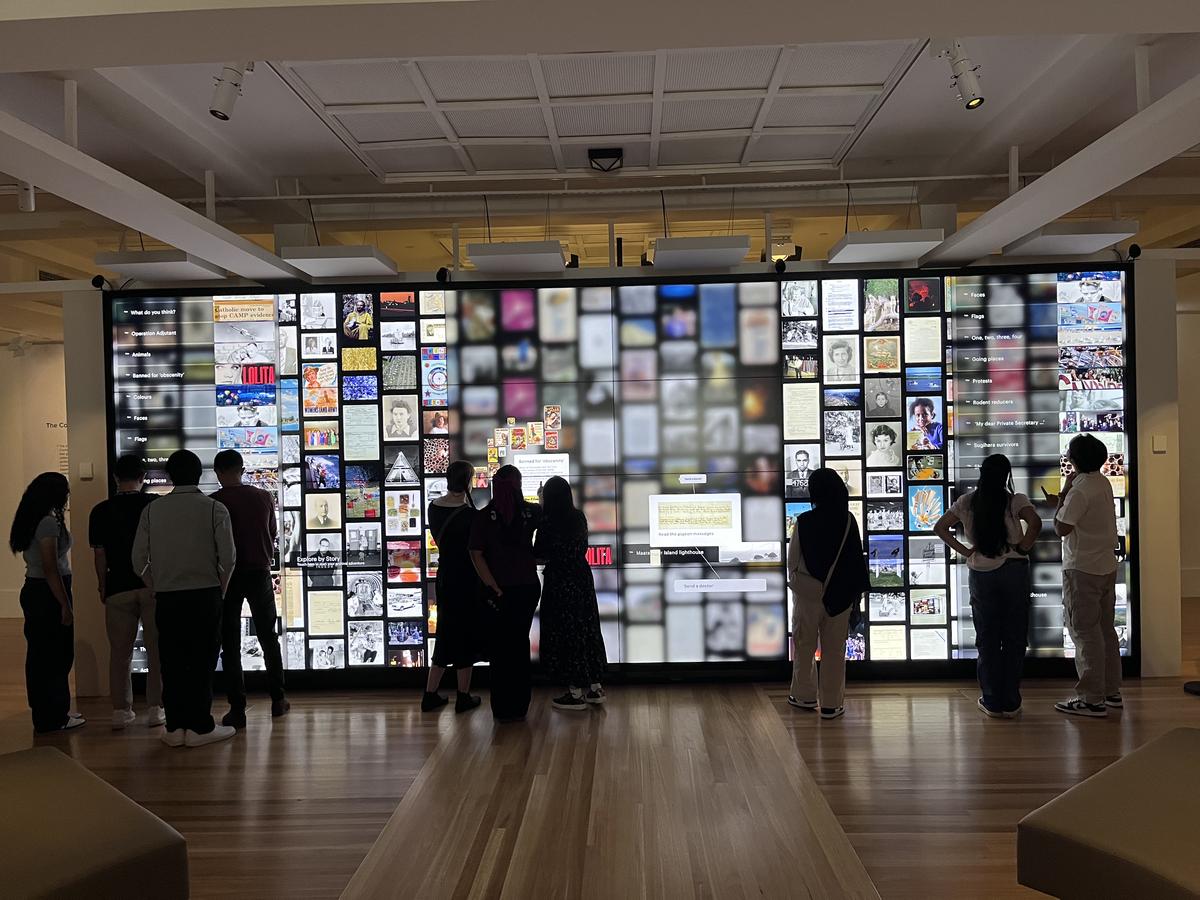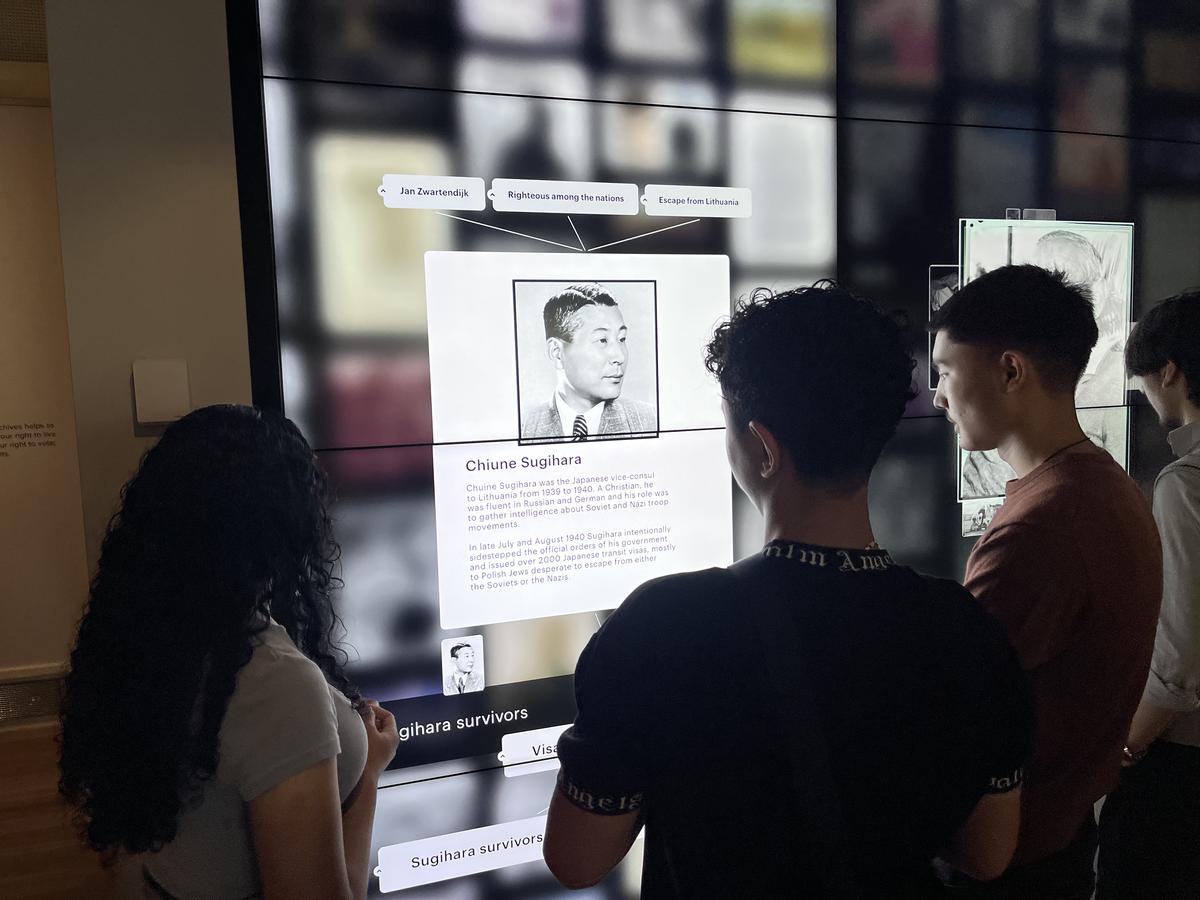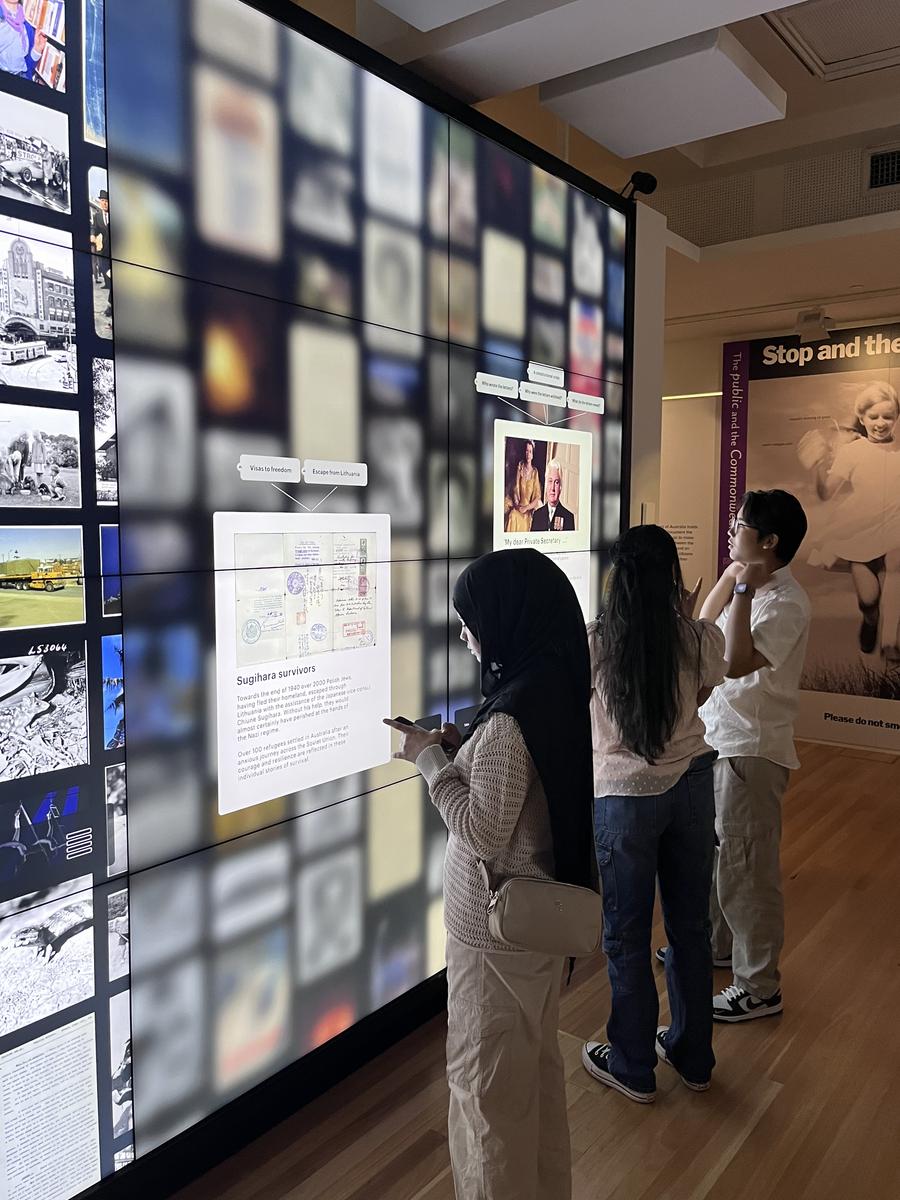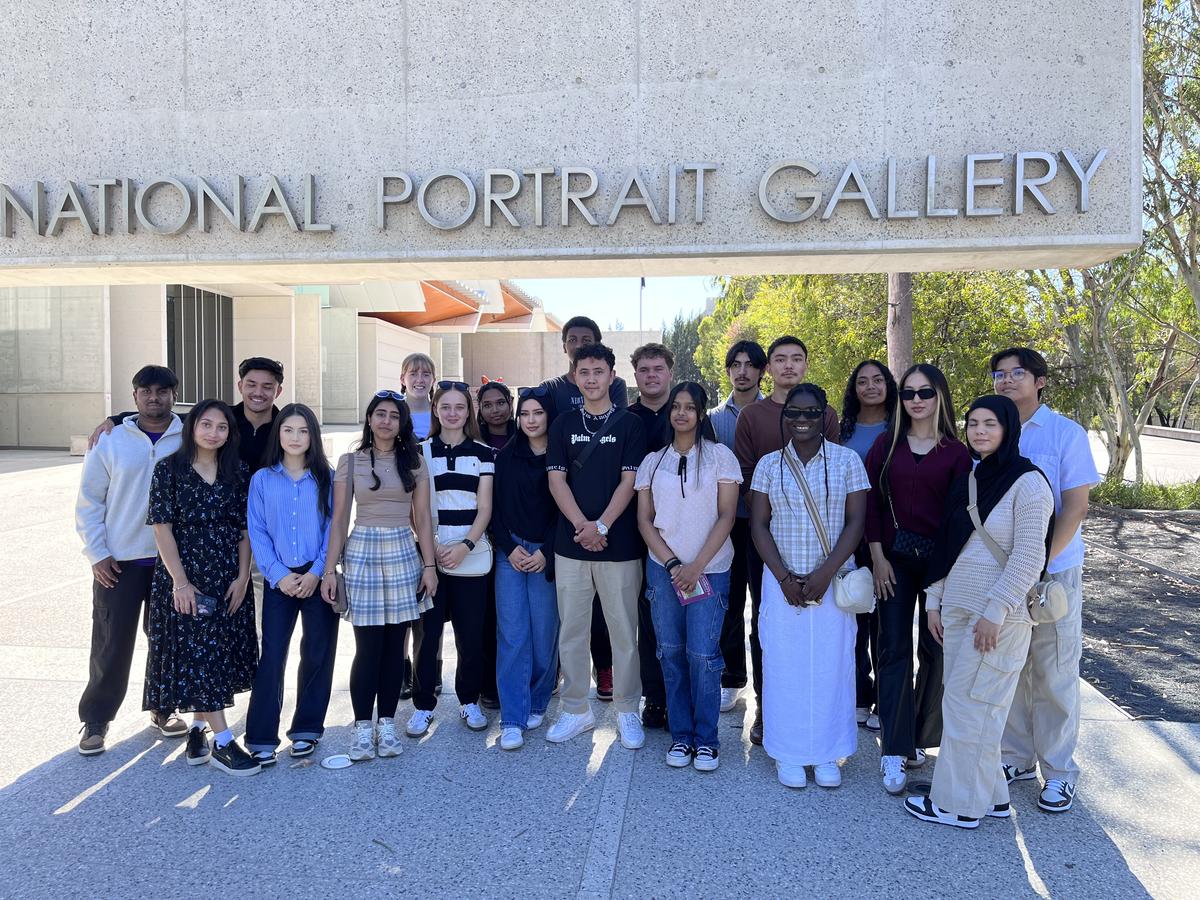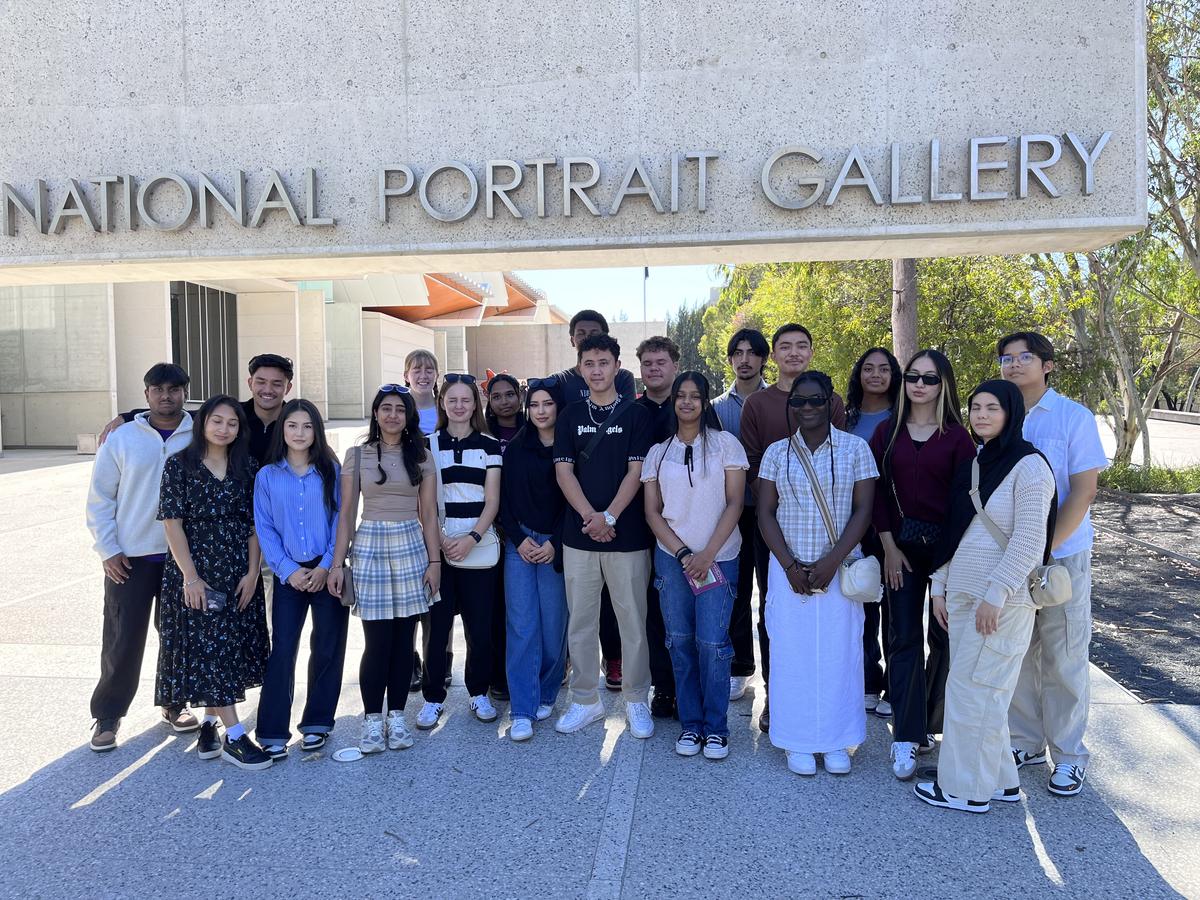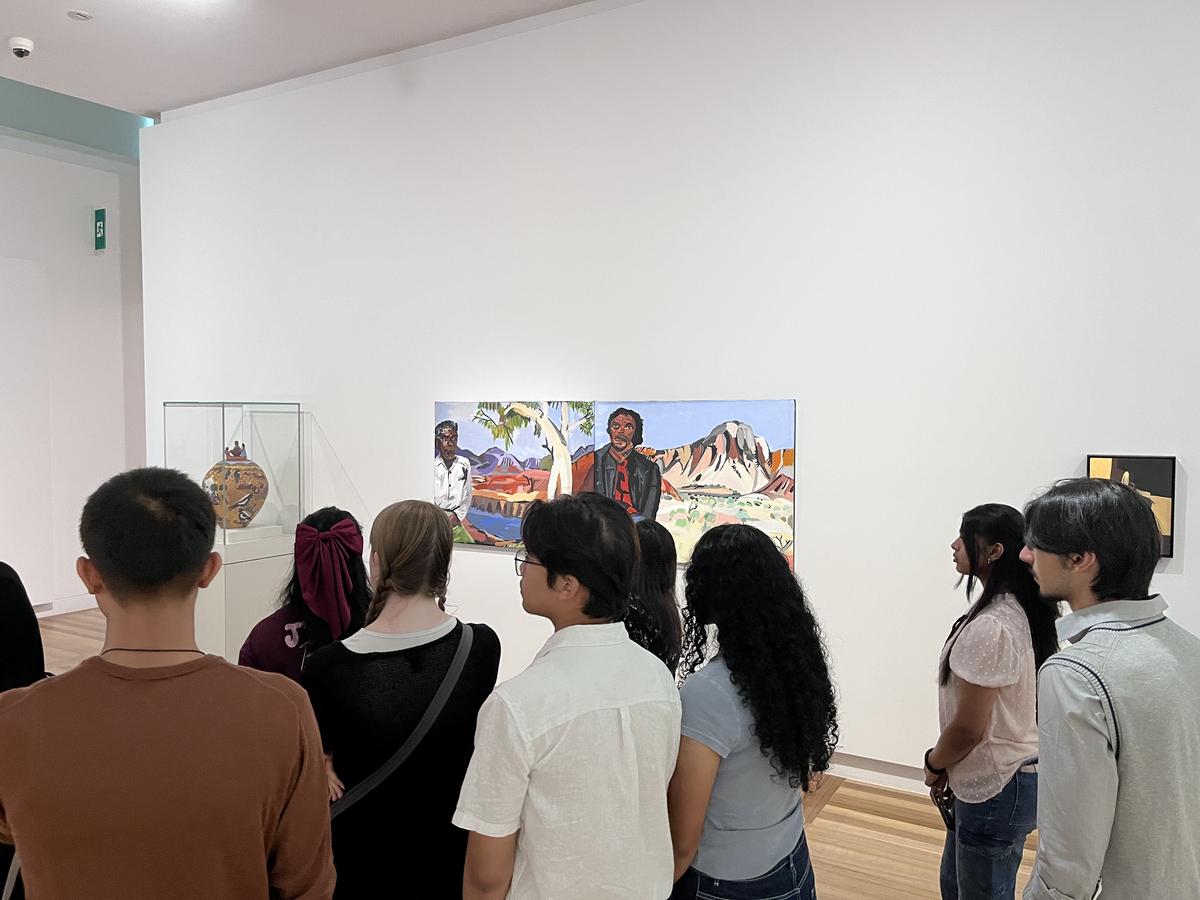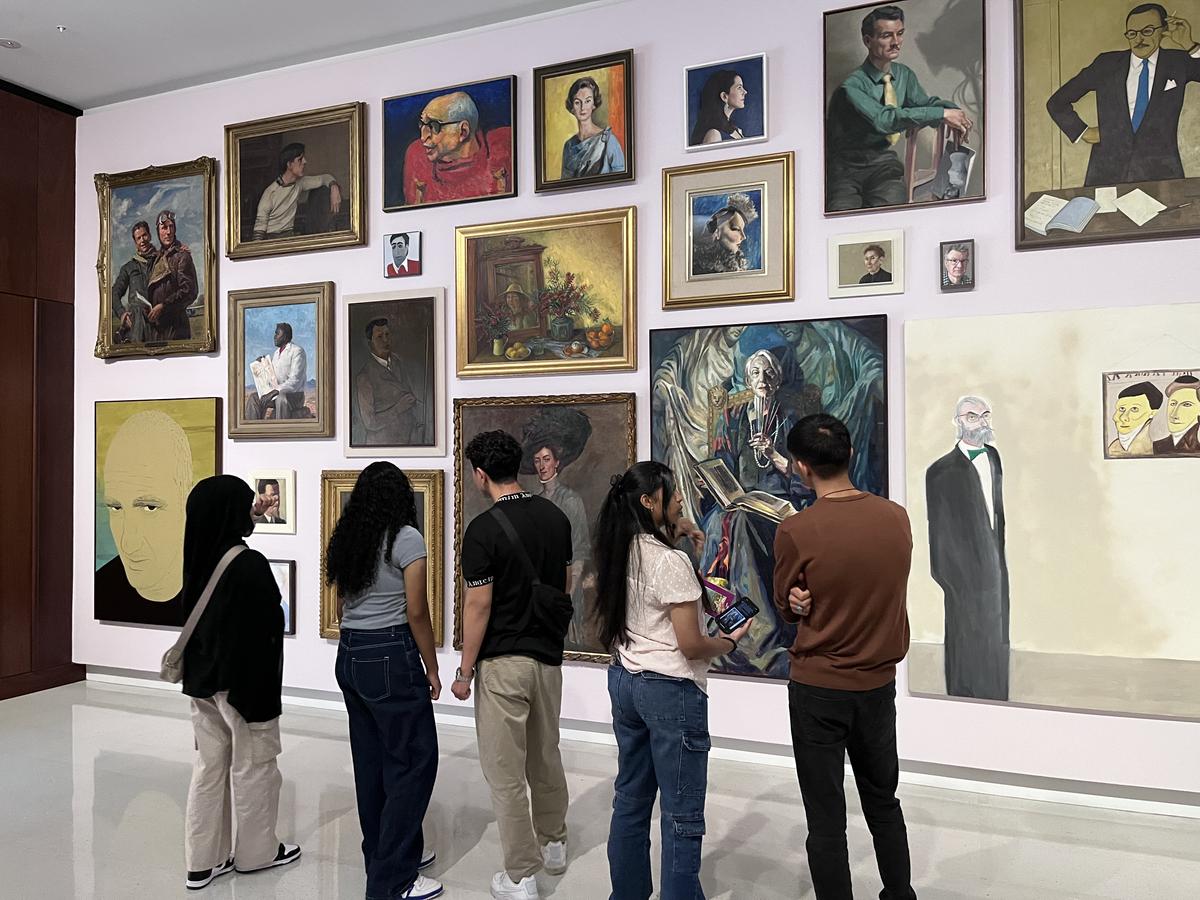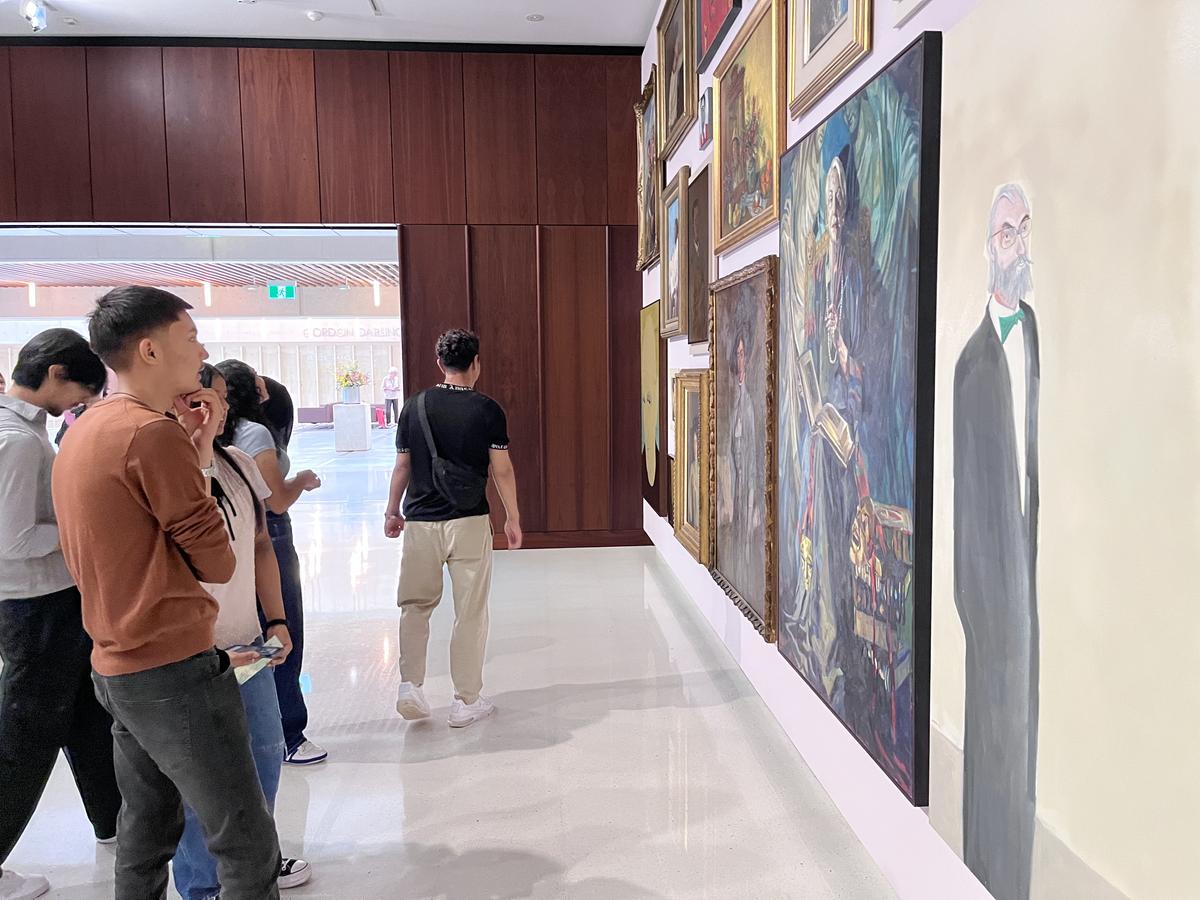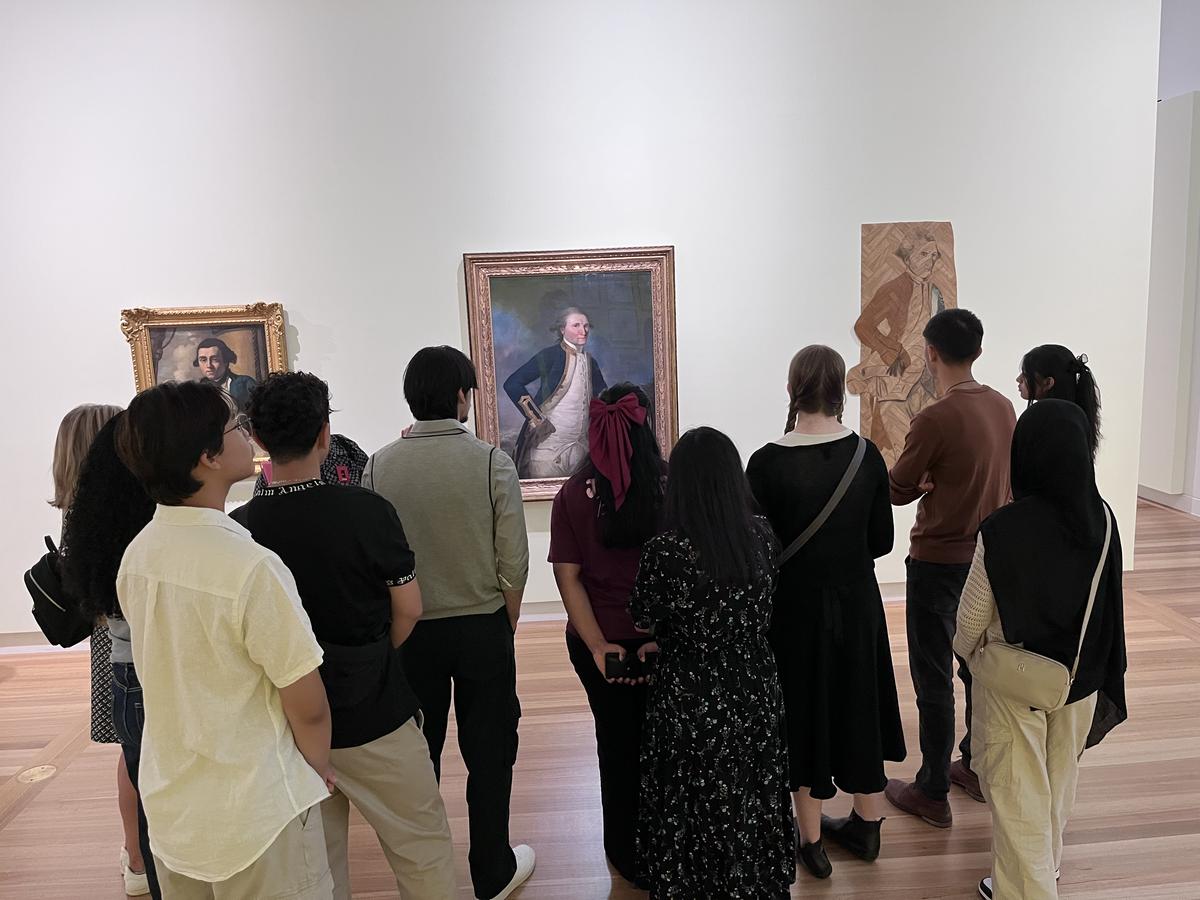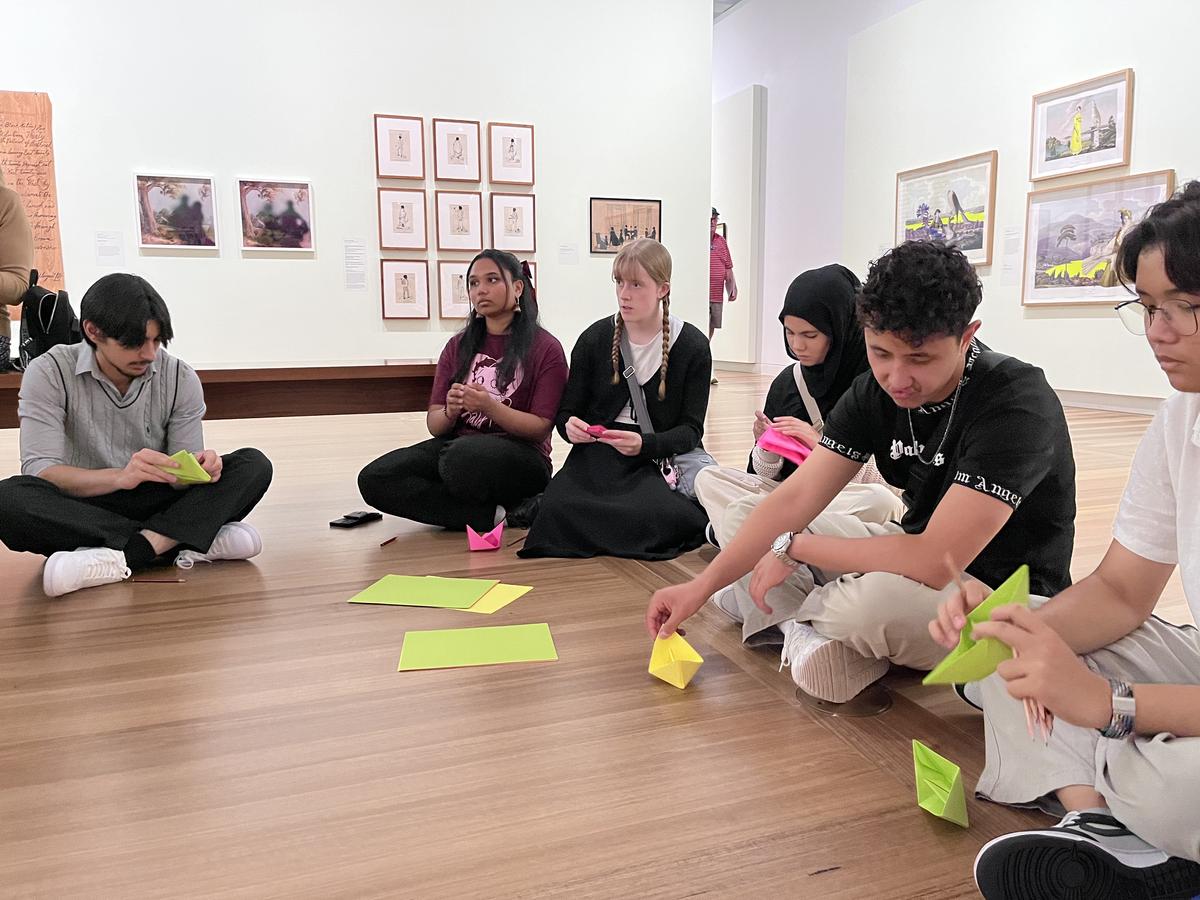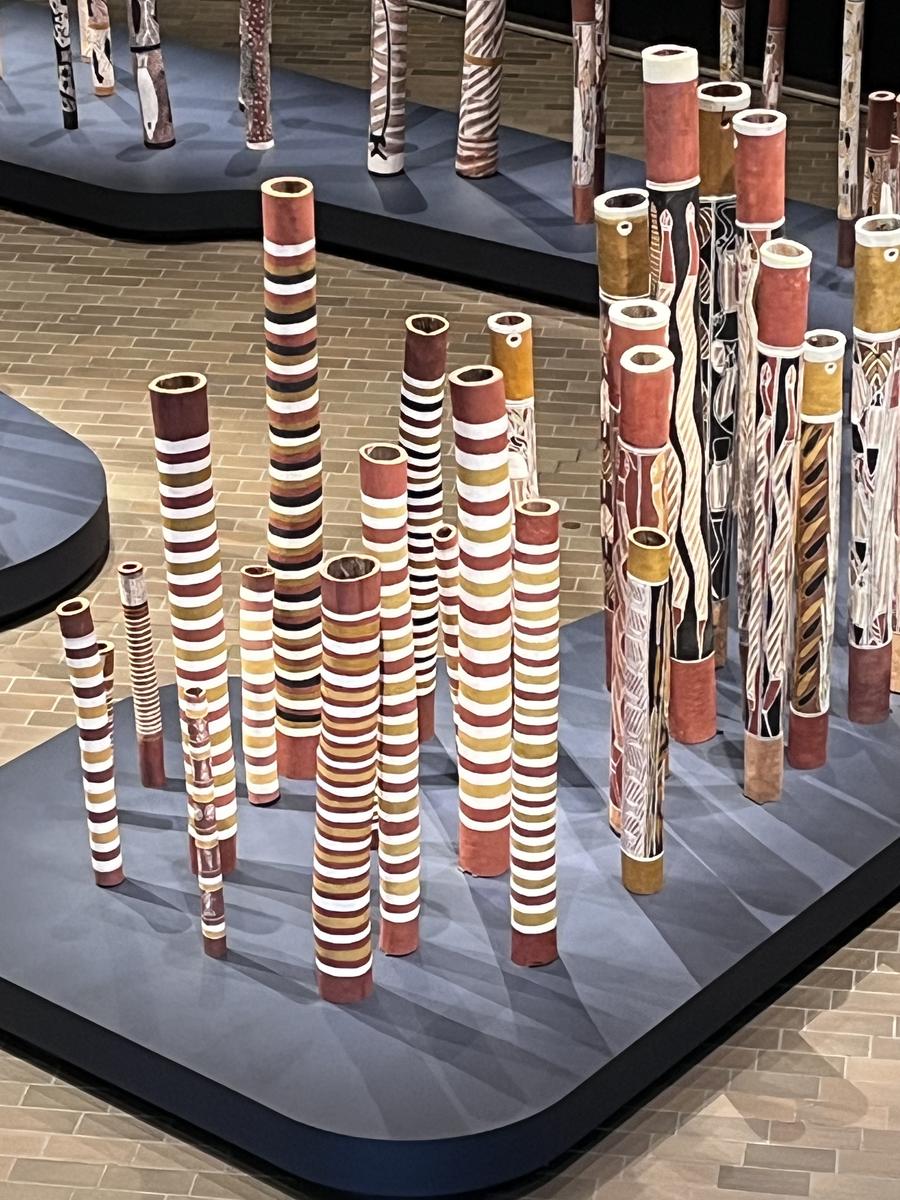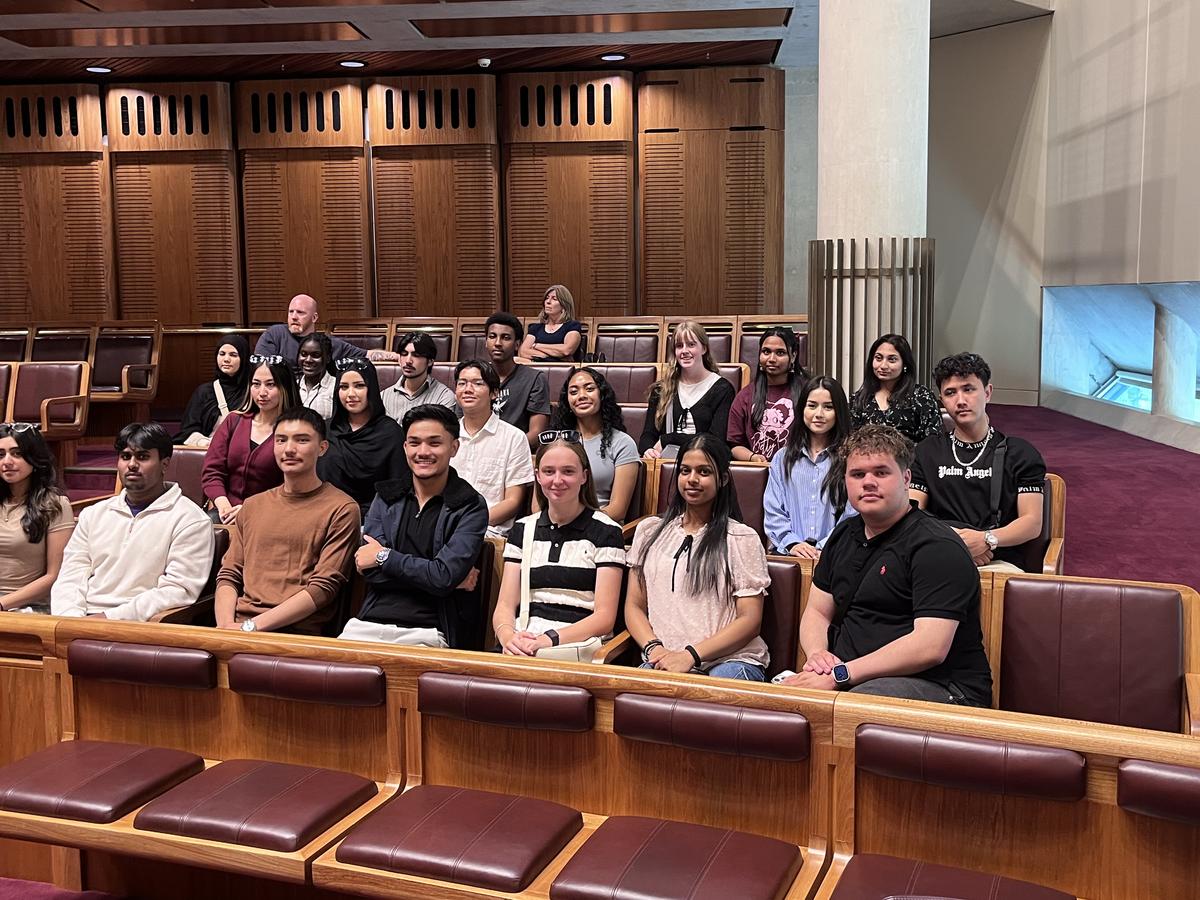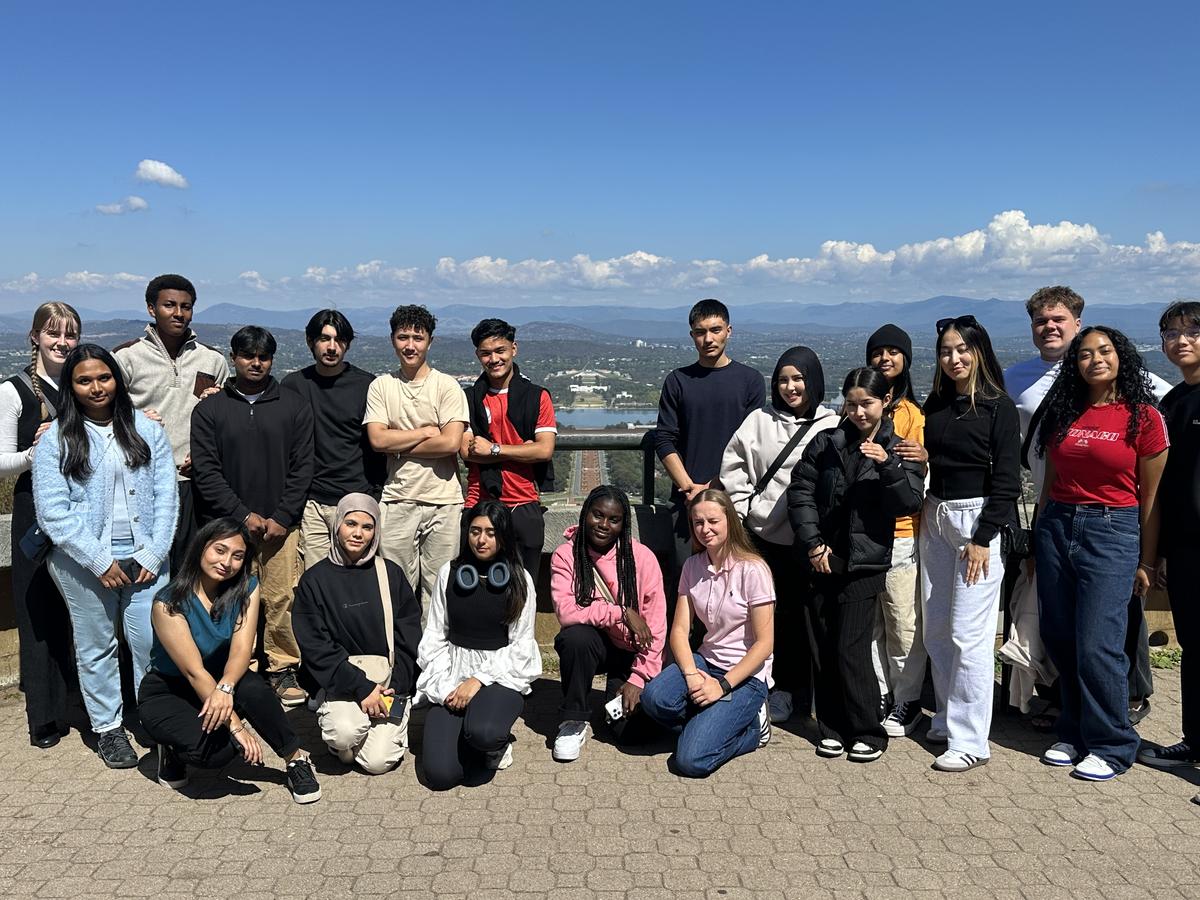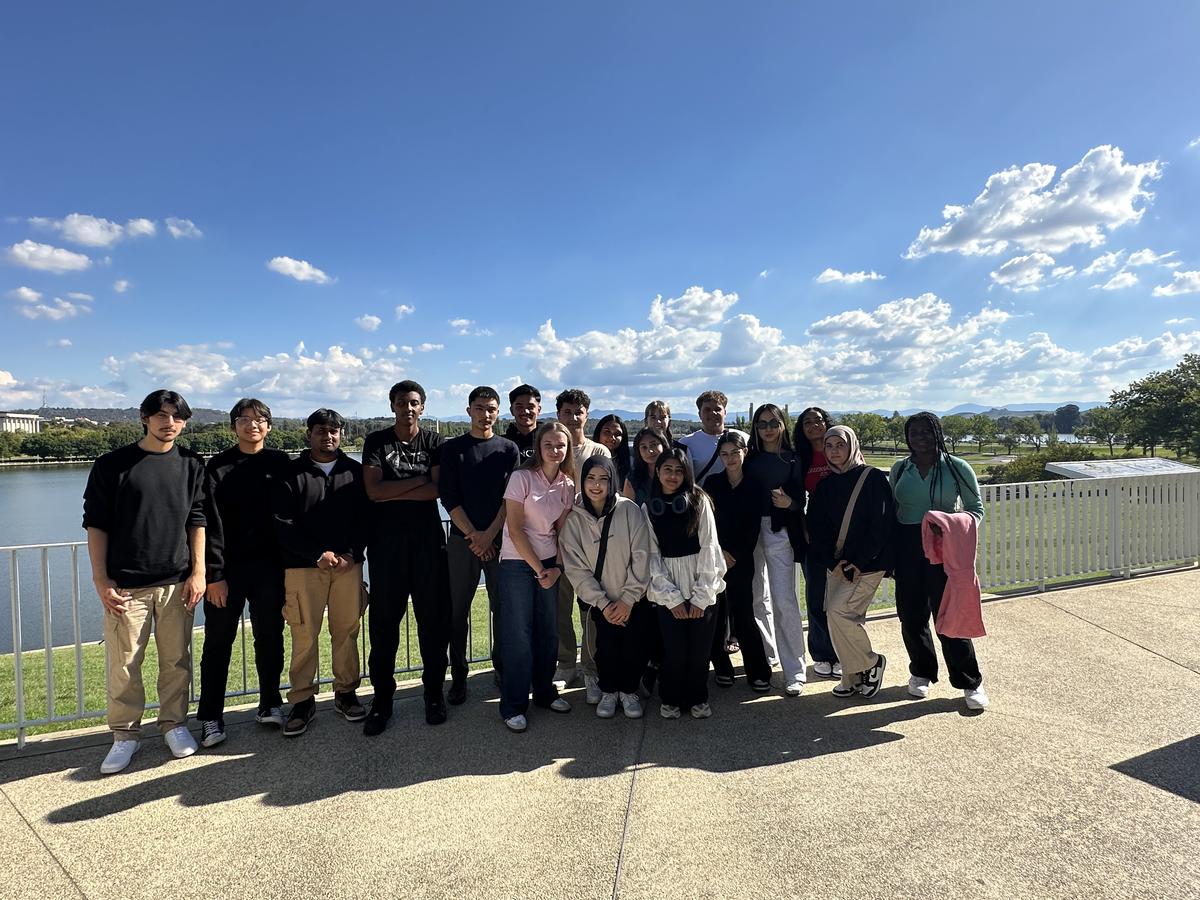Year 12 Leadership Camp

At Dandenong High School, we value leadership and in particular Student Leadership. In order to support and foster such an important aspect of our school, we have developed an extensive Student Leadership Program that involves many activities and experiences aimed at developing and supporting the Student Leaders in our school. Each year, the Year 12 Student Leaders travel to Canberra to experience and develop an understanding of how our Nation’s leadership structure operates and the various levels of leadership involved. This learning supports the work of Year 12 Student Leaders in enacting student agency and voice at the school.
Here are some reflections on the experience and learning from the Trip, which took place in March.
Electoral Education Centre
On Day 1 of our Year 12 Leaders trip to Canberra, we visited the Electoral Education Centre. It was a really fun and enjoyable experience as we got to learn about how elections work, including the preferential voting system and the role of the Australian Electoral Commission. We did our own voting and role playing with everyone, which was very entertaining, and It helped us understand the importance of voting and being active participants in democracy.
The experience we got to have as Year 12 leaders was an absolute honour. Learning about the history of Canberra, how the referendum works, and the knowledge about our soldiers and nurses who have fought in the war. The war memorial was where we got to expand and gain new learnings through their exceptional leadership skills that every soldier and nurse fought for their countries. The way they represent equality through the wall of poppies, embracing that they are all one, was what caught my eye that day. Going through the art gallery, the museum and many other significant places on during the days was a great way to connect all the information and keep developing as we walk through Canberra’s history. The best experience for me was the visit to the two parliament houses and the visit to question time. It was really fun to be able to hear live how the government runs, how our leaders work and the history of Parliament. Being able to spend some time with Julian Hill was an amazing privilege we had, and learn about his life, perspectives and ideologies on the role of “influence”. Overall I am really thankful to be able to go on this trip but more than that, enjoy my last year as Year 12 student with all my leaders and learn new people, connect and increase my network.
Zeel and Sienna
Callistemon House Captains
Australian War Memorial
Our visit to the Australian War Memorial was a deeply moving experience that gave us a profound understanding of the sacrifices made for our country. It wasn’t just about history—it was about learning the true meaning of bravery, courage, and leadership. We discovered that leadership isn’t about titles but about stepping up, making tough decisions, and inspiring others. Our actions, no matter how small, have the power to influence the world, just as those who served have influenced generations to come.
Hadi and Zain
Eucalyptus House Captains
High Court of Australia
Visiting the High Court of Australia in Canberra was a surreal experience for the Student Leaders we have studied civil rights, the Constitution, and the role of the judiciary in upholding justice, but actually stepping into the very place where these principles are applied made it all feel real.
Seeing the courtrooms and recognising landmark cases such as the Franklin River, deepened our appreciation of the legal system and its impact on Australian society.
It also reinforced our understanding of influence in leadership, which was a key reflection factor throughout the camp. Especially how the High Court’s rulings are binding on lower courts and influence future decisions made by lower courts. It ties on nicely with the fact we are Year 12 student leaders, and the decisions we make the way we act around the juniors can influence how they behave as well.
The visit to the High Court also assisted in developing leadership skills. Observing the authority and responsibility of the Chief Justices, highlighted the importance of informed decision making and ethical reasoning, essential to strong leadership.
Mridula and Praneet
School Captains
Parliament House & Julian Hill MP
On the 2nd day of the Canberra camp, we went to the current Australian Parliament house, which has both the House of Representatives (150 representatives of Australian electoral divisions) and the Senate (76). Within the House of Representatives, we got to meet the representative for Bruce (which is the electorate Dandenong is in), Julian Hill MP!
Throughout the half an hour we met with him for we were able to ask him some questions, including some about influence, leadership, parliament house, government and being a representative of Dandenong.
Some of the key takeaways from our time with him were:
Do not listen to those who are putting you down or hating on you, just stay calm & positive,
Influence can be created by both individuals and groups,
The best way to influence someone is to talk to the people around them,
You can learn a lot from the people around you, as people will have different experiences from you.
Leaders and communities influence each other, not just the leaders influencing everyone else.
Just because you do not see or experience something doesn't mean it never happens.
Overall, we learnt a lot from Julian Hill MP. It was an amazing experience to be able to meet with him and ask him many questions about various aspects of leadership and being in Government.
Ruba and Ahmed
SRC Presidents
National Portrait Gallery
The topic of influence was the theme for our Canberra leadership camp, and the National Portrait Gallery experience really brought this to life for our group. There were so many breathtaking artworks, but two stood out for many of us: Ryan Presley's "Blood Money; Infinity Dollar Note" and Michael Peck's portrait of Neale Daniher. Ryan Presley's work depicted Aunty Regina Pilawuk Wilson, a prominent Indigenous elder and artist. Aunty Regina's story reminded us that leaders can impact the way people think and act and can lead advocacy for the recognition of pivotal topics concerning society. It was an important reminder that influence is built on action, resilience, and creating a legacy that values other people. On the other hand, Michael Peck's portrait of Neale Daniher captured the essence of leadership even in hardship. Neale Daniher is a former professional AFL player who is known for his work in fighting against motor neurone disease (MND) and initiating charities for the cause. He demonstrated the extraordinary change a leader can create because of persistence, passion and hard work.
During our time at the camp, we also placed great emphasis on the fact that influence is a two-way process where leaders have an impact on people and people have an impact on leaders. Our visit to the National Portrait Gallery reinforced this idea that influence is NOT about position or power. Influence is about being able to make a difference, to leave a legacy, and to learn from others. Whether you are an artist, an activist, a leader, or a regular person, real influence comes from inspiring and being inspired by people.
Krithiga and Ieli
Hakea House Captains
National Archives of Australia
Standing on the land of the Ngunnawal people, the National Archives of Australia (NAA) preserves more than 50 million records that document key government decisions and moments in Australian history. Our incredible guides, Maree and Patrick, led us through an insightful journey, exploring how Australia’s identity has been shaped by both the voices that were heard and those that were silenced.
Through archival records, we gained a deeper understanding of the struggles faced by Aboriginal and Torres Strait Islander Peoples, women, and migrants in their fight for Constitutional recognition. We also learned about the impact of restrictive migration policies and the broader formation of Australia’s constitutional system. Our experience at NAA challenged us to think critically about history not just as a collection of events, but as a narrative shaped by power, inclusion, and exclusion.
Seth and Hosna
Grevillea House Captains
Australian Institute of Sport
On the final day of the trip, we visited the Australian Institute of Sport, which was a fascinating experience. We had the opportunity to explore the facilities and observe many athletes training and preparing for their competitions. Our tour guides, Coby and Kaila, were fantastic enthusiastic, energetic, and highly knowledgeable.
We also learned about the purpose behind the establishment of AIS—to provide athletes across Australia with a dedicated space to perfect their sport and refine their skills. This reminded me of how school is like that to us, offering an environment to focus, grow, and seize opportunities that help shape our future lives.
During our visit, we learnt a lot about the AIS. For example, when we toured the swimming training facility, we heard about Linda, an elite swimmer who follows a rigorous training schedule of 14 sessions per week: 10 pool sessions, 3 gym sessions, and 1 cross-training session. This demonstrated the incredible dedication and effort required to perfect one's skills.
Connecting this to leadership, we, as leaders, must commit the same level of time, effort, and discipline to developing our skills. Just like elite athletes refine their abilities through consistent training, strong leaders continuously work on improving their communication, decision-making, and teamwork to inspire and guide others effectively. Through this experience, we learned about how much pressure the athletes are placed under and how they use that pressure to improve their performance and produce outstanding results.
Hussain and Dunsin
School Vice Captains
